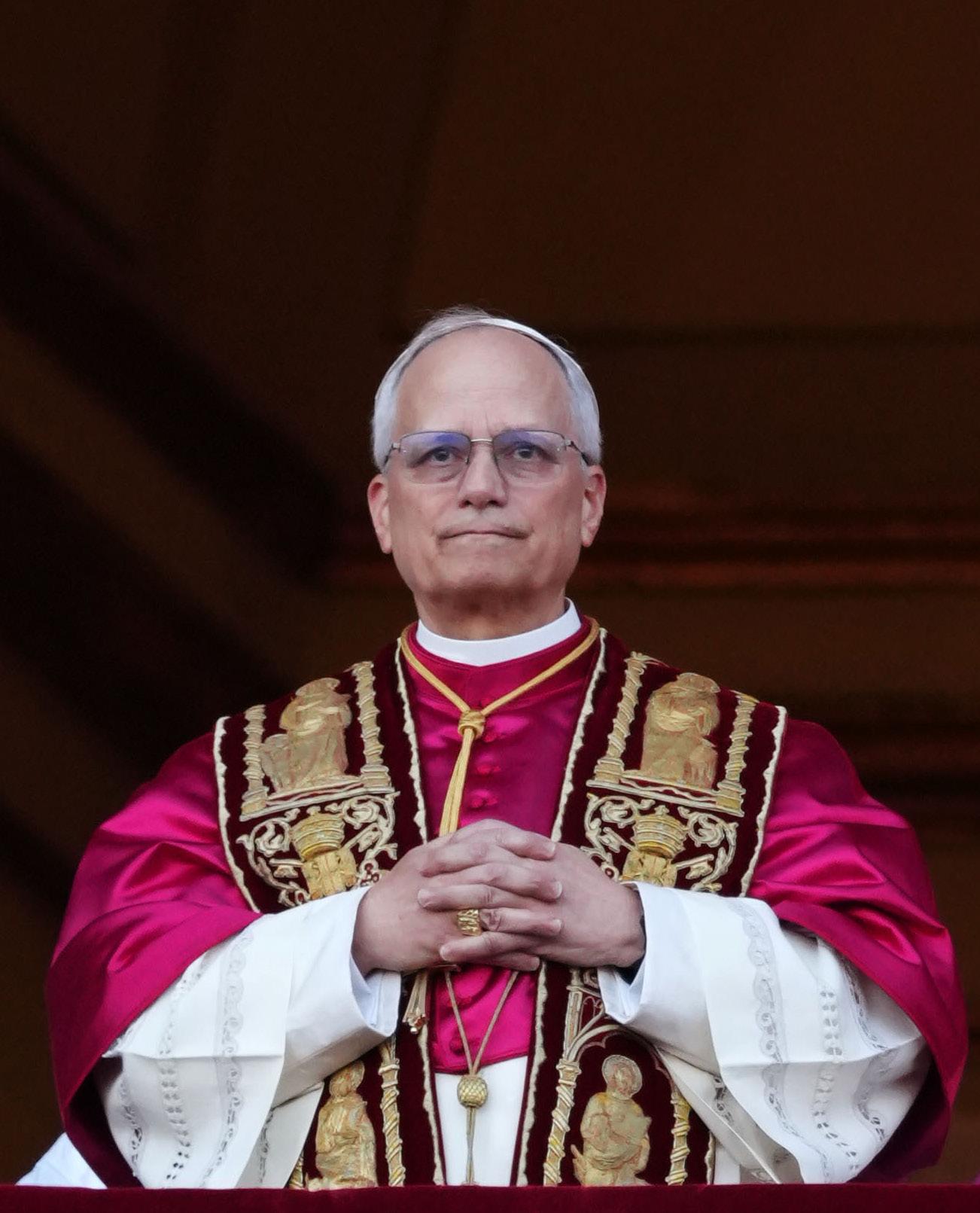

A personal message from the Editor in Chief
You Can Change the World!
How would you like to put an end to war? To violent crime? What about ending poverty, pollution, divorce, racial prejudice, and thievery? Do you realize you can? It is all spelled out in the Bible—in a way many could never imagine.
We at Tomorrow’s World have long looked forward to fixing the world’s problems. Tomorrow’s World has been in print for more than 25 years as I write this, and this issue marks the 100th of our Spanish-language magazine, El Mundo de Mañana, looking forward to that better world ahead. We all want to put an end to poverty, pollution, divorce, racial prejudice, and juvenile delinquency. We hope you share that desire. But we go beyond merely hoping— we plan to do just that.
We know that individuals and organizations can effect change, but so far, no one has brought universal and lasting peace to planet Earth. Yet that is exactly what we plan to do. So, you may rightfully wonder, is that realistic? Or are we simply disillusioned dreamers? Are such aspirations achievable? The straightforward answer is, yes, we will change the world! Furthermore, you can be a part of that change!
The good news Jesus brought is that you and I can help transform this world from what it is today— but not in the way you may think. You don’t need to join a university student protest movement or lobby for just the right political candidate. For thousands of years, people have sought a messiah figure to solve mankind’s problems, yet the war “to end all wars” has come and gone—and other wars have followed. True, some leaders are better than others, but none know the way to peace, so the world continues down its relentless path to destruction.
Few professing Christians understand the good news that Jesus proclaimed for three-and-a-half years before His crucifixion, but there is nothing mysterious about His message: “Now after John was put in prison, Jesus came to Galilee, preaching the gospel [good news] of the kingdom of God, and saying, ‘The time is fulfilled, and the kingdom of God is at hand. Repent, and believe in the gospel’” (Mark 1:14–15). But
how does believing Christ’s message make it possible for you to change the world?
The Best News You’ve Never Heard
A ruler of the Jews, a Pharisee by the name of Nicodemus, came to Jesus at night and was shocked when Jesus told him that he must be born again to “see the kingdom of God” (John 3:3). And being born again means far more than a temporary emotional experience. It involves a change from flesh and blood to spirit (vv. 6, 8). Years later, the Apostle Paul explained that “flesh and blood cannot inherit the kingdom of God; nor does corruption inherit incorruption” (1 Corinthians 15:50). For a more complete understanding of this subject, you can order a free copy of our informative resource John 3:16: Hidden Truths of the Golden Verse. Jesus refers three times to “the ruler of this world,” who opposes Him (John 12:31; 14:30; 16:11). Paul adds that this ruler is the god of our present age: “But even if our gospel is veiled, it is veiled to those who are perishing, whose minds the god of this age has blinded, who do not believe, lest the light of the gospel of the glory of Christ, who is the image of God, should shine on them” (2 Corinthians 4:3–4). And we read that this ruler, Satan the Devil, has deceived the whole world (Revelation 12:9).
Dear friends, you and I are not going to change Satan’s world right now—no matter how much we try. We and our supporters at Tomorrow’s World have a
How Your Subscription Has Been Paid
Tomorrow’s World has no subscription price. It is made possible by the tithes and offerings of Living Church of God members and by others who have chosen to become coworkers in proclaiming Christ’s true Gospel to all nations. Donations are gratefully acknowledged and may be tax-deductible.
larger platform than most of our readers, but we still cannot change the course of this world at this time. Yes, we can change our own lives and, through Tomorrow’s World, help others do the same—but we cannot stop wars, hatred, and violence. So, how is it that, according to the good news Christ brought, you and I can change the world?
Jesus told us that humanity would come to the place where all life would be destroyed were it not for His intervention (Matthew 24:21–22). He will stop our madness and take the place of the current ruler. Do you believe what Jesus said—that He will return to be King of kings and save us from ourselves? It’s right there in the Bible, and this world is heading in exactly the direction Jesus said it would go.
The prophet Zechariah wrote of a time in the near future when all the nations of the earth will gather to fight against the Jews and take possession of Jerusalem. Can we not see this taking shape even now?
Jesus told us that humanity would come to the place where all life would be destroyed were it not for His intervention.
Only then will the Savior, Jesus Christ, return to save the Jews and humanity in general. “Then the Lord will go forth and fight against those nations, as He fights in the day of battle. And in that day His feet will stand on the Mount of Olives…. And the Lord shall be King over all the earth” (Zechariah 14:3–4, 9). One of Christ’s first tasks upon His return will be to expel the current ruler, who is deceiving mankind and directing the course of this world (Revelation 20:1–3; 12:9; Ephesians 2:2).
Why is this exciting news not being shouted from the rooftops? Open your Bible and read these passages! Don’t believe anything just because I say it— but don’t dismiss it without opening your Bible and finding out for yourself!
Why do most not understand this? The reason is not hidden: “Hearing you will hear and shall not understand, and seeing you will see and not perceive; for the hearts of this people have grown dull. Their ears are hard of hearing, and their eyes they have
closed, lest they should see with their eyes and hear with their ears, lest they should understand with their hearts and turn, so that I should heal them” (Matthew 13:14–15). I hope that does not describe you!
Who Will Change the World?
We cannot at this time change mankind’s overall course. Only Jesus Christ can do that. But He will not be alone when He does—the resurrected servants of God will rule with Him. “I saw thrones, and they sat on them, and judgment was committed to them. Then I saw the souls of those who had been beheaded for their witness to Jesus and for the word of God, who had not worshiped the beast or his image, and had not received his mark on their foreheads or on their hands. And they lived and reigned with Christ for a thousand years” (Revelation 20:4).
Yes, those resurrected to eternal life upon Jesus’ return will also rule with Him for those thousand years—but not in Heaven. Rather, they will be “kings and priests to our God,” and they “shall reign on the earth” (Revelation 5:9–10).
The Bible tells us—and experience demonstrates—that Satan is the god of this present age. This will change when Jesus Christ returns as King of kings and Lord of lords (Revelation 19:11–16). One of those kings will be David, who will rule over all twelve Israelite tribes (Jeremiah 30:9; Ezekiel 34:23–24). Assisting David will be the Twelve Apostles, who will each rule over one of the tribes (Matthew 19:28). Other true servants of God will be given rulership over cities and other administrative matters—not in Israel alone, but across the whole world (Luke 19:12–19). But take note of Christ’s parable: The one who is given an opportunity but does nothing during his lifetime loses even what he was given (vv. 20–26).
It is after the return of Jesus Christ that you and I—if we have ears to hear and eyes to see and if we do the Work of God today—can be participants in the greatest transformation of this earth the world has ever known! Yes, you can change the world!

5 On Popes and Prophecy
What should the new Roman Catholic pontiff mean to us? The answer is more important than almost anyone imagines.
14 Why the Red Heifer Matters
Why do some in Israel want “red heifers” so badly, and why are some in the Islamic world so opposed to them?
16 Europe’s Time Has Come
Even as you read this magazine, another revival of the Roman Empire is underway. Here’s why we’re not surprised.
22 Remembering the Scopes “Monkey Trial”
At its 100th anniversary, this famed controversy still raises profound questions about creation, evolution, and education.
26 When Hard Work Is Not Enough
We were wrong about Theodore Roosevelt—and many of us have learned the wrong lesson from his life.
10 Jennie’s Magnificent Gardens
12 Making a Chain 25 Your Mental Diet
Questions and Answers 28 NewsWatch
30 Letters to the Editor 31 Television Log

Circulation: 512,000
To request free literature or correspond with the editors, contact the Regional Office nearest you or write to Letters@TomorrowsWorld.org
United States PO Box 3810
Charlotte, NC 28227-8010
Phone: +1 (704) 844-1970
Australasia PO Box 300
Clarendon SA 5157, Australia
Phone: +61 8 8383 6266
Canada PO Box 465
London, ON N6P 1R1 Phone: +1 (905) 814-1094
New Zealand PO Box 2767
Shortland Street Auckland 1140 Phone: +64 9-268 8985
Philippines PO Box 492
Araneta Center Post Office 1135 Quezon City, Metro Manila Phone: +63 2 8573-7594
Evolution v. Creation –22–
South Africa
Private Bag X30 Menlo Park, 0102 Pretoria, GP, South Africa Phone: +27-12-331-0058
United Kingdom PO Box 8112
Kettering NN16 6YF
United Kingdom Phone: +44 844 800 9322
We respect your privacy: We do not rent, trade, or sell our mailing list. If you do not want to receive this magazine, email us or contact the Regional Office nearest you.
On Popes and Prophecy
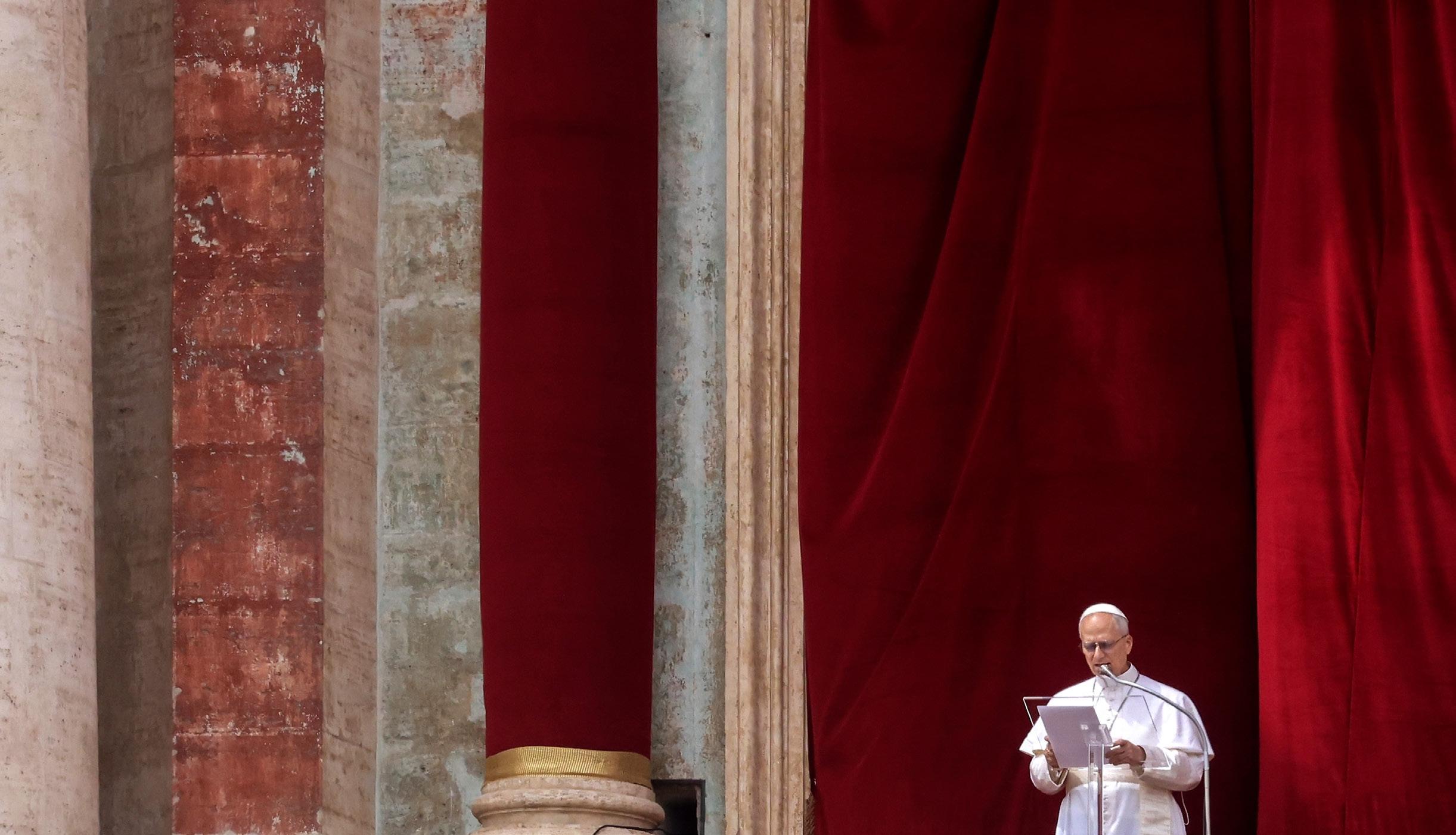
By Wallace G. Smith
Anyone watching the livestream from the Vatican on May 8, 2025, would naturally be moved by the drama and heartfelt emotion of the occasion.
As the crowd outside St. Peter’s Basilica murmured in the background, all eyes were focused on a small chimney ascending from the roof of the Sistine Chapel. At 6:07 p.m. local time, white smoke began to billow from the chimney, bringing the joyous audience to life. A new pope had been elected to lead the Roman Catholic Church. The now-ecstatic throng roared with jubilation, some throwing their arms up in the air, others weeping quietly with hands clasped before their faces. Flags from around the world waved in witness to the vast number of nations represented among the 1.4 billion across the globe who would see the new Pontifex Maximus as their shepherd.
Barely more than an hour after the first puff of white smoke appeared, the man once known as Cardinal Robert Francis Prevost appeared on the balcony of the basilica. Now bearing the name Leo XIV, he stood ready to address the crowd as their new “Holy Father,” succeeding Pope Francis, who had died 17 days before.
The 69-year-old Prevost, born in Chicago, Illinois—the first U.S. bishop ever elected to the papal office—inherits a troubled institution. On one side, loud voices cry out for a return to the older ways of pre-Vatican II Catholicism, fearing that attempts to reach out to our degraded culture have led to accommodating its degradation. On the other side, equally loud voices cry out for more of the reform Francis represented for many as he sought to make his church more accessible to the excluded and marginalized who seek its guidance. The divide is so great that some feared a schism was inevitable—perhaps one reason why Prevost, seen by some as a man between the extremes, was elected.
But why should we care? The world’s faithful Roman Catholics will certainly care. But what of the other 6 to 7 billion human beings on planet Earth? After all, the era of popes choosing emperors, launching wars, or commanding Inquisitions seems long past. What impact could Leo XIV possibly have on the life of an average, non-Catholic person?
In fact, the impact of one pope—perhaps this one, or perhaps one to follow—will be great indeed. If we allow Bible prophecy to guide us, we will see that a man leading the Vatican hierarchy may well stand at
the very center of end-time events in the years ahead. But understanding why and how requires us to understand the plain truth about the papacy.
Extraordinary Claims
Faithful Roman Catholics see Leo XIV as the 267th bishop of Rome in a continuous succession extending back to the Apostle Peter. In the late second century AD, the Catholic bishop Irenaeus defended the primacy of the Roman bishop on the supposed grounds that the church there was “founded and organized… by the two most glorious apostles, Peter and Paul” (Against Heresies 3:3:2). Peter was said to have taken up residence in Rome for about 25 years as the bishop of its congregations before he and the Apostle Paul were martyred there. Since then, it is claimed, the bishop of Rome has been the “Pontifex Maximus”—a term borrowed from Rome’s pagan past—meaning essentially “head bridge-builder” as the chief of bishops the world over.
Perhaps the strongest statement of papal power was made by Pope Boniface VIII in 1302, who stated unequivocally, “We declare, we proclaim, we define that it is absolutely necessary for salvation that every human creature be subject to the Roman Pontiff.” Interestingly, while later developments have softened that statement’s interpretation, it is still, as they say, “on the books.” And the modern Catechism of the Catholic Church is plain-spoken: “The Pope, Bishop of Rome and Peter’s successor… has full, supreme, and universal power over the whole Church, a power which he can always exercise unhindered” (§882).
Extraordinary claims, to be sure. But are they true? Setting dogma aside and examining the evidence of both secular history and sacred Scripture provides the answer: No, they are not! If we are willing to allow God to guide us, we can see the plain truth regarding true Christianity.
Peter: Clearly the Leading Apostle
After Simon the fisherman was the first to confess Jesus’ identity as the Christ and Son of God (Matthew 16:15–18), Christ changed this disciple’s name to Peter, a Greek name meaning a rock or stone—a frequently misunderstood change that we will examine later. During His ministry, Christ frequently mentioned Peter, James, and John as having leading roles among
His disciples (Matthew 17:1; Luke 8:51; Mark 14:33). The Lord Jesus prayed specifically for the protection of Peter, whom the Devil targeted (Luke 22:31–32).
On the Day of Pentecost, upon the first public proclamation of the newly Spirit-empowered Church, all the disciples spoke—but Peter clearly took the lead (Acts 2:4–8, 14). His peers recognized that Peter had been given a special commission to take the Gospel of the Kingdom to the “circumcised” (Galatians 2:7). And though the commission to the Gentiles would fall primarily to Paul, God still used Peter to first open the door to them (Acts 10–11; 15:7). James specially cited Peter’s words at the conclusion of the Jerusalem conference (Acts 15:13–21). And in lists of the Apostles, Scripture always lists Peter first, even though Peter’s brother, Andrew, apparently followed Jesus earlier (Matthew 10:2; Luke 6:13–14; John 1:40–42).
God is organized and orderly (see 1 Corinthians 14:33, 40), so it should be no surprise that there is structure and order within the leadership of His Church. The Almighty consistently organizes His people under the leadership of one individual—whether on a national scale, as when Moses led the Israelites, or on a personal scale, as found in the biblical family. Why should we expect the Church to be organized any differently (see Malachi 3:6; Hebrews 13:8)?
Clearly, Christ gave Peter a special place of leadership among the Apostles. Yet it is just as clear that Peter’s role in the early Church did not resemble the modern-day papacy. The Apostle Paul’s description of James, Peter, and John as those who “seemed to be pillars” in Jerusalem is hardly what one would expect if one of them possessed “full, supreme, and universal power over the whole Church.” And while Peter’s testimony was found especially important in Acts 15, it appears that James, not Peter, presided over the conference (vv. 13–21), perhaps as leader of the congregation in Jerusalem (Acts 21:17–18; Galatians 2:12), which was at that time the headquarters of God’s Church. And Paul’s calling out Peter’s hypocrisy among the Gentiles hardly seems to reflect the deference and veneration shown to popes today (see Galatians 2:6–14).
Truly, nothing in the biblical accounts of Peter’s ministry among his fellow Apostles shows him in anything like the role of “pope” as understood by Roman Catholic believers today.
Is Peter “the Rock”?
But if Peter was not the first pope, how should we understand Matthew 16, where Jesus asked His disciples who they understood Him to be? Peter was the first to answer: “You are the Christ, the Son of the living God” (Matthew 16:16). In response, the Savior blessed Peter and said that this recognition came not from Peter’s own intelligence, but from God’s revelation (v. 17). Christ then changed Peter’s name from Simon, his given name, to Peter, in a statement that has launched more debates than perhaps any other in the history of Christianity:
Blessed are you, Simon Bar-Jonah, for flesh and blood has not revealed this to you, but My Father who is in heaven. And I also say to you that you are Peter, and on this rock I will build My church, and the gates of Hades shall not prevail against it. And I will give you the keys of the kingdom of heaven, and whatever you bind on earth will be bound in heaven, and whatever you loose on earth will be loosed in heaven (vv. 17–19).
We see here a play on words. In New Testament Greek, Peter is Petros, which is related to the Greek word petra for “rock.” But did Christ say He would build His Church on the man Peter? Papal supporters point to a seemingly obvious connection: Jesus changed Peter’s name to “rock” because He would build the Church on Peter—and, by extension, all the popes they say have followed as successors.
Critics of the papacy, however, point out that the words petros and petra are not the same, and in fact point to differences of meaning, with petros indicating a smaller stone and petra a much larger one. Papal supporters try to diminish this distinctive wordplay, observing that it is not found in the Aramaic language Jesus and Peter were speaking, where kepha (the basis of Paul’s use of Cephas as Peter’s name) would have served both purposes. Yet God chose to record the inspired account in Greek, not Aramaic—so the Greek distinction should not be dismissed out of hand.
The True Rock Revealed
If we look to other inspired passages, the truth about “this rock” is clear. Jesus Christ is the Rock on whom the Church is built. Paul identifies Christ as the cor-
nerstone of the “household of God” (Ephesians 2:19–20). Peter himself affirms this in his public preaching and his writings to other Christians (Acts 4:11; 1 Peter 2:6–7). The Savior revealed that He Himself is the foundational stone (Matthew 21:42) and explained in parables that building “on the rock” means acting on His teachings (Matthew 7:24–25). Paul, explaining that the preincarnate Jesus Christ was the God who aided ancient Israel, affirmed, “That Rock was Christ” (1 Corinthians 10:4).
Even one of the most influential “doctors” of the Roman Catholic Church, Augustine of Hippo, made exactly the same arguments in his writings and sermons in the early fifth century AD. Later in his life, Augustine quoted some of the very same verses mentioned above to point out that it was Jesus Christ, the One whom Peter confessed—not Peter himself—who was the Rock on which Christ promised to build His Church (e.g., The Retractations, ch. 20, sec. 1; Sermon 76; Sermon 295; Sermon 229P). A thousand years before any Protestant reformers made this argument against the papacy, one of the leading Roman Catholic theologians had done the same! In fact, Pope Leo XIV, himself a follower of Augustine, made the very same point concerning Christ’s being the Rock in his inaugural Mass in May.
And what of Christ’s statement about the “keys of the kingdom of heaven” and authority to bind and loose on earth and heaven? Just two chapters later, Christ gives that same authority to bind and loose not just to Peter, but to all the Apostles (Matthew 18:18). Yes, Christ was moving the “seat” of authority—to judge according to God’s laws—from the Jewish leadership to His Apostles (see Matthew 23:1–3, 13). But as that authority was given to all the Twelve, it can hardly be used to support the idea that the pope possesses “full, supreme, and universal power over the whole Church.”
Rome’s Claims Crumble
And what of the claim that the church in Rome was “founded and organized” by the Apostles Peter and Paul? Even if true, this would still be insufficient to establish Rome as the authoritative headquarters for all Christians. Regardless, neither history nor Scripture is kind to this claim.
Respected historian Eamon Duffy is a Catholic scholar known for his zeal for his church and its papacy. But he is also plain about the tales of Roman
Catholic origins and the claims of an unbroken papal line from Peter to today’s pontiff:
They are pious romance, not history, and the fact is that we have no reliable accounts either of Peter’s later life or of the manner or place of his death. Neither Peter nor Paul founded the Church at Rome, for there were Christians in the city before either of the Apostles set foot there. Nor can we assume, as Irenaeus did, that the Apostles established there a succession of bishops to carry on their work in the city, for all the indications are that there was no single bishop at Rome for almost a century after the deaths of the Apostles. In fact, wherever we turn, the solid outlines of the Petrine succession at Rome seem to blur and dissolve (Saints and Sinners: A History of the Popes, Fourth Edition, 2014).
No, the Christian community at Rome was not “founded and organized” by Peter and Paul, as Irenaeus would falsely assert more than a century after both had been martyred. In fact, Paul made it plain that the living Christ had commissioned Peter to take the Gospel to Israelites, just as Paul was commissioned to take it to Gentiles—the “circumcised” and “uncircumcised,” respectively, of Galatians 2:7–9. The idea that Peter would abandon Christ’s commission to take up a decades-long residence as a “bishop of Rome” is absurd.
Further, Peter wrote in his first epistle that he was writing from “Babylon”—a real first-century place name, attested by first-century historians Philo and Josephus. In fact, Josephus notes that there were “Jews in great numbers” in Babylon in the first century (Antiquities 15.2.2), meaning that Peter’s presence there is consistent with his commission to the “circumcised.”
And it is equally clear that when Paul wrote to the Romans, he was writing to strengthen an already extant and active body of believers, expressing his longing to eventually visit them (e.g., Romans 1:9–12; 15:22–28). Significantly, when in Romans 16 Paul greets many notable Christians in Rome by name, he makes no mention of Peter. Paul may well have gone to Rome later, and both he and Peter may indeed have met their ends there. But the idea that they founded Rome’s Christian community is baseless.
In fact, in AD 451, the Council of Chalcedon noted in Canon 28 that the reason for Rome’s primacy was primarily “because it was the imperial city”—that is, due to its political importance, and not any theological or apostolic grounds.
Why It Matters
Early accounts of the organization that would become the Roman Catholic Church show numerous significant decisions made—as in the Council of Nicaea in AD 325—with scarcely any involvement of a “pope” at all, and certainly with no appeal to the authority of one. The truth is that the papacy is a gradual creation of that organization—not a continuation of the “chair of Peter” and not divinely ordained by Jesus Christ. No pope as understood by Catholics today is found in the biblical record.
But why should we care? For at least two vital reasons. First, any claims that the Roman Catholic Church and its pope possess authority to deviate from the plain and simple commands of Jesus Christ and the laws of God are utterly unfounded, unsupported by Scripture. And such deviations are legion
For instance, consider the seventh-day Sabbath, explicitly mandated in the Fourth Commandment (Exodus 20:8–11) and observed by the first-century Church as attested by both Scripture and secular history. How did Sunday come to be observed instead? The Convert’s Catechism of Catholic Doctrine, published in 1910 under official imprimatur, is plain: “We observe Sunday instead of Saturday because the Catholic Church, in the Council of Laodicea (A.D. 336), transferred the solemnity from Saturday to Sunday.”
Also consider the worship and veneration of images, statues, and icons. Such worship is explicitly forbidden in the Second Commandment (Exodus 20:4–6). Yet “the seventh ecumenical council at Nicaea (787) justified… the veneration of icons—of Christ, but also of the Mother of God, the angels, and all the saints” (Catechism of the Catholic Church, §2131). Word games claiming that such “veneration” is not “worship” do not change the fact that any ancient (or modern) heathens viewing Catholic custom regarding statuary and icons would recognize their own idolatrous practice.
Christ Himself condemned those who, in His day, did possess the “keys” and sit in the seat of authority: the scribes and Pharisees. And what did He say of
them when they used their authority to depart from the word of God and create interpretations of His law that effectively violate that law?
Why do you also transgress the commandment of God because of your tradition?… Thus you have made the commandment of God of no effect by your tradition. Hypocrites! Well did Isaiah prophecy about you, saying: “These people draw near to Me with their mouth, and honor Me with their lips, but their heart is far from Me. And in vain they worship Me, teaching as doctrines the commandments of men” (Matthew 15:3–9).
What a parallel! Like the Pharisees of old, papal authorities throughout the centuries have made judgments concerning God’s laws that have caused His commands to be made “of no effect” through the resulting traditions. Those who do so today share in the Pharisees’ condemnation.
Recognizing whether the pope is a true leader or a false one does matter. It matters because truth matters—and the Father is not seeking those who will follow in the Pharisees’ footsteps, putting tradition over truth, however sincere they might be. God does not play word games, and He is seeking those who will worship in both “spirit and truth” (John 4:23–24).
A Prophesied False Prophet
It also matters because your Bible warns of a charismatic, miracle-working false prophet who will lead a global religious revival in the years leading up to Christ’s return. This figure will be the head of a powerful, wealthy, world-encompassing church representing a false, counterfeit Christianity (2 Thessalonians 2:8–10; Revelation 17:1–6). This deceptive false prophet will be the last in an ancient line of false leaders who have claimed to teach in Christ’s name—a line Jesus prophesied would begin during the lives of His Apostles and be seen in the “antichrists” of their own day (Matthew 24:4–5; 1 John 2:18). This line will culminate in an end-time false prophet who will appear Christian in many ways but teach subtle twists
MAY WE SUGGEST?
(word games) and deceptive doctrines of the Devil (Revelation 13:11).
This religious leader will wield political influence, as well, in league with a coming European superpower and its leader—the notorious “beast” of Revelation. Together, they will persecute those who seek to hold to the true teachings of Jesus Christ and resist false doctrines (Revelation 13:12–15). Prophecy depicts this wealthy, powerful, compromising, “Christian” church, led by the false prophet, as becoming drunk on the blood of the righteous saints it will slaughter (Revelation 17:6).
The end of that counterfeit church, its religious leader, his political ally, and the entire, blasphemous system they represent is certain: They will be utterly destroyed by Jesus Christ and His glorified saints at the Savior’s return. But, before that time, the prophesied false prophet to come—speaking in Christ’s name, claiming to act on His behalf and with His authority, and adored by millions upon millions of “Christians” worldwide—will be at the very center of an astonishing amount of suffering.
Only the spiritually blind could fail to see the potential connection between the vast, wealthy, ostentatious, powerful, counterfeit “Christian” church of prophecy, led by a singular false prophet, and the Roman Catholic Church of today, led by a pope and teaching falsehoods in Christ’s name. And only the foolish would be unwilling to seriously consider the matter. To be sure, none of this means that Pope Leo XIV is definitely that prophesied false prophet. But the office he now occupies fits the role, and students of God’s word will be watching to see what the months and years ahead will bring.
To help you study this topic further, we offer two valuable study guides: Satan’s Counterfeit Christianity and Who or What Is the Antichrist? You can read them online at TomorrowsWorld.org or order your own free printed copy. The truth of Christ is not to be found in the councils, creeds, or canon laws of the Roman Catholic Church—nor those of her harlot daughters (Revelation 17:5), who have inherited their mother’s compromises and made new ones of their own. Yet Jesus Christ did promise to build His Church—and He has! These two resources will help you begin your journey to finding it. TW
Who or What Is the Antichrist? Those who don’t see him coming will be taken in by his lies— but you don’t have to be caught unaware. Request this free printed booklet from the Regional Office nearest you, or order at TomorrowsWorld.org PDF and ePub are also available.

Oh Canada! Jennie’s Magnificent Gardens
North of the city of Victoria on Vancouver Island, a famous landmark tells a story of transformation and hard work, showing how even in this troubled world, mankind is capable of amazing achievements.
In the 1850s, George Butchart moved from Dundee, Scotland, to the village of Owen Sound, Ontario. Butchart, a young man in the hardware business, had learned of an English bricklayer’s invention of a new material called “Portland cement,” named after the island of Portland—near Dorset, England—as the new cement product looked a lot like Portland limestone.
Butchart had a son named Robert, who would in time take over his father’s hardware business. By 1905, Robert had identified great business potential along Canada’s west coast, in the growing colony of British Columbia, and had moved there with his wife, Jennie.
When Robert learned that the Canadian Pacific Railway sought to replace its wooden rail-bridge bases with concrete ones, he saw an opportunity. Just north of Victoria, he found a large soft limestone deposit suitable for making Portland cement. He bought the property, and he and Jennie built a home there, next to what would become the quarry and cement works.
The family’s fortunes improved marvelously when Robert began to ship cement in paper bags instead of barrels. This made their product cheaper and easier to transport, and demand for it grew. The 1906 San Francisco earthquake spurred a huge increase in demand for Portland cement—and Robert met the need, becoming very rich.
Eventually, the old limestone quarry became exhausted. With the empty quarry and retired cement

works wearing on her nerves, Jennie made frequent appeals to have the whole unsightly place cleaned up. Robert finally acquiesced and gave her free rein to do whatever was needed, money being no object.
Jennie went to work. Part of her motivation came when friends told her bluntly that no one could get anything to grow on that barren rock. Jennie, who had been quite bold and adventurous in her youth, was determined to prove them wrong. But what was she facing?
A huge quarry, waterlogged at the bottom, strewn with rusting, abandoned equipment and other debris—it was the very definition of ugly.
Not yet knowing much about gardening, Jennie hired some expert gardeners. She herself worked very hard, sometimes hanging on a rope above the quarry floor, pushing soil and vine roots into cracks in the rocky wall. Debris was cleaned up, hundreds of horse carts of soil were brought in, and drainage was installed. Between 1912 and 1921, the quarry was slowly transformed and named the Sunken Garden. Nine years of work had paid off.
And Jennie did not stop at the Sunken Garden—she also hired an expert Japanese gardener to build one of the finest examples of a Japanese garden in existence, worked to transform the family’s former tennis court into an Italian garden, and cultivated an abundant rose garden. Her projects were seemingly endless, and her work eventually became a family effort.
A Vision Made Real
Today, the Butchart Gardens have become renowned as some of the most beautiful gardens on earth. No longer an unsightly place to avoid, people by the thousands


come to see the remarkable Sunken Garden twelve months of the year. More than a million visitors annually visit this former wasteland transformed into a garden of breathtaking beauty—the result of what just one hardworking family accomplished. Such an incredible achievement holds lessons of great encouragement.
Desolation can be reversed. The quarry was not mere wilderness—it was desolate, ugly, and lifeless, its natural habitat destroyed. The Butcharts’ work is an encouragement to mankind, giving us confidence that even desolate, ravaged areas of the earth can become beautiful, desirable, and productive.
Great strength is unleashed when people work in harmony under a common cause and leadership— when any large project is successfully completed, it is because people are working together. In this case, Mr. and Mrs. Butchart were in total agreement. Mr. Butchart became more and more interested in the work, and the project expanded. Over the generations, family members continued the project, and continual effort proved essential to maintaining such a treasure. One of the most picturesque sites on earth resulted from one family’s desire to work diligently toward a common goal for as long as it took to achieve it.
There is power in sharing and generosity—sharing makes effort more worthwhile and enjoyable. The Butchart family wanted to share their gardens with others, and they were generous with all they had. While Mr. Butchart made sure his family was looked after, he was most kind with the surplus, as was his wife. As a result, millions of people have enjoyed their gardens. In the early years—until it became impossible—every visitor received a cup of tea in a teahouse built for this

purpose. Jennie was a hands-on gardener, and her joy was magnified when others received pleasure from her work. Although very wealthy, she was often in work clothes tending the garden with her staff. There is a story that goes as follows: One day, two visitors, thinking she was a paid worker, plied her with questions that she took great pleasure in answering. When leaving, they offered her a tip, to which she replied, “Oh, no, thank you—the old lady wouldn’t like that.”
Vision, diligence, and perseverance produce good fruit. Jennie Butchart had a vision, and she was willing to overcome great challenges. The Butcharts exemplified industry—the willingness to work hard toward a goal and to struggle to surmount obstacles. Their vision for their gardens was to develop something beautiful, and they never lost the desire to make it better. Vision is essential to bringing about a desired result, to stick to a task, and to sustain morale—and the Butcharts had a vision that would benefit them and their community.
A World Restored
Despite the skepticism of a modern world, the Bible clearly predicts a future ruled by the returned Jesus Christ and His Family—resurrected “firstfruits.” It describes a world restored from destruction to great beauty, peace, and productivity. “The wilderness and the wasteland shall be glad for them, and the desert shall rejoice and blossom as the rose; it shall blossom abundantly and rejoice, even with joy and singing. The glory of Lebanon shall be given to it, the excellence of Carmel and Sharon. They shall see the glory of the Lord, the excellency of our God” (Isaiah 35:1–2). This will be a time when people will live by God’s law, which will produce generosity, kindness, diligence, and creativity.
The Butchart family achieved a great feat, transforming a desolate quarry into what the Canadian government has designated as a National Historic Site. Yet this is just a minuscule example of what is pictured to come, when God’s Kingdom administers His law on this earth, creating a paradise infinitely more spectacular, joyful, and lasting than even Jennie’s magnificent gardens. To learn more, request our free Bible study guide The World Ahead: What Will It Be Like? from the Regional Office nearest you, listed on page 4 of this magazine, or claim your free copy online at TomorrowsWorld.org
Stuart Wachowicz
The Old Quarry Today: Butchart Gardens, Victoria, B.C.
MAKING A CHAIN
To what will you link your chain?
Much of the Western world is plagued by acts of violence. In cities large and small, surveillance cameras record assaults and murders. Differences in political philosophies have erupted into physical altercations and death threats. Deadly school shootings shatter lives and families. Images of these violent acts fill television news programs and social media posts. Violence has become so prevalent that we are largely desensitized to it.
Are there underlying reasons for the increase in violent crime? The Bible reveals both the underlying causes of and the solutions to these tragic events. Anciently, the prophet Ezekiel delivered a stern, sobering message to the people of his day, even though they did not want to hear it. He proclaimed, “Make a chain, for the land is filled with crimes of blood, and the city is full of violence” (Ezekiel 7:23). His analysis applies today. Crime and violence are linked with a series of actions and behaviors that ultimately lead to these intractable problems. The prophet Isaiah stated, “The way of peace they have not known, and there is no justice in their ways; they have made themselves crooked paths; whoever takes that way shall not know peace” (Isaiah 59:8).
The collapse of the traditional family structure in much of the Western world—resulting in a lack of stability and loving discipline in the home—is a part of the chain, often leading to criminal acts. Other connecting links are the use of illicit drugs, the influence of profane music, and gang culture, which often lead to violent crimes.
Entertainment, literature, and advertising have “normalized” behavior such as casual sex, gender confusion, and the promotion of homosexuality. This, of course, links to the epidemic of sexually transmitted diseases. Unplanned pregnancies resulting from this moral collapse link to eliminating unwanted children through abortion. Adding to this are those who choose abortion instead of parenthood because they view childbearing as an impediment to their career goals.
In the halls of government, corruption links to the lack of public confidence in political leaders. Mis-
use of the law has weakened confidence in the judicial system. Many people vent their frustration and anger in ways that add to the chain of violence.
The Missing Link
These seemingly intractable problems exist because most people are not linked to the standard of conduct known as the Ten Commandments, handed down by a loving Creator. These laws are listed in Exodus 20:1–17 and Deuteronomy 5:6–21. The Sixth Commandment states, “You shall not murder.” Other statutes and judgments explain how violent accidents and self-defense fatalities are to be handled.
The Seventh Commandment states, “You shall not commit adultery.” This decree prohibits all sexual relations outside of marriage. Other statutes and judgments that further define prohibited sexual activity are listed in Leviticus 18.
The Eighth Commandment states, “You shall not steal.” This simple, direct statement prohibits all forms of dishonesty involving personal property. Other scriptures go into detail about contracts, weights and measures, and so on. The Ninth Commandment, “You shall not bear false witness against your neighbor,” addresses other types of deception. Finally, the Tenth Commandment states, “You shall not covet” and gives details about what we all must avoid desiring.
Imagine the positive change in society if these godly standards of conduct were linked to people through their ideas, words, and actions. The “bloody crimes” would cease! Moses recorded God’s words on this subject: “Oh, that they had such a heart in them that they would fear Me and always keep all My commandments, that it might be well with them and with their children forever” (Deuteronomy 5:29).
While you cannot change society, applying these principles in your personal life will result in the blessings that righteous conduct brings. We look forward to the return of Jesus Christ in power and glory to establish God’s reign on the earth. Then His standard of conduct will be obeyed by all as the problems of humanity are finally solved (Revelation 11:15).
J. Davy Crockett III
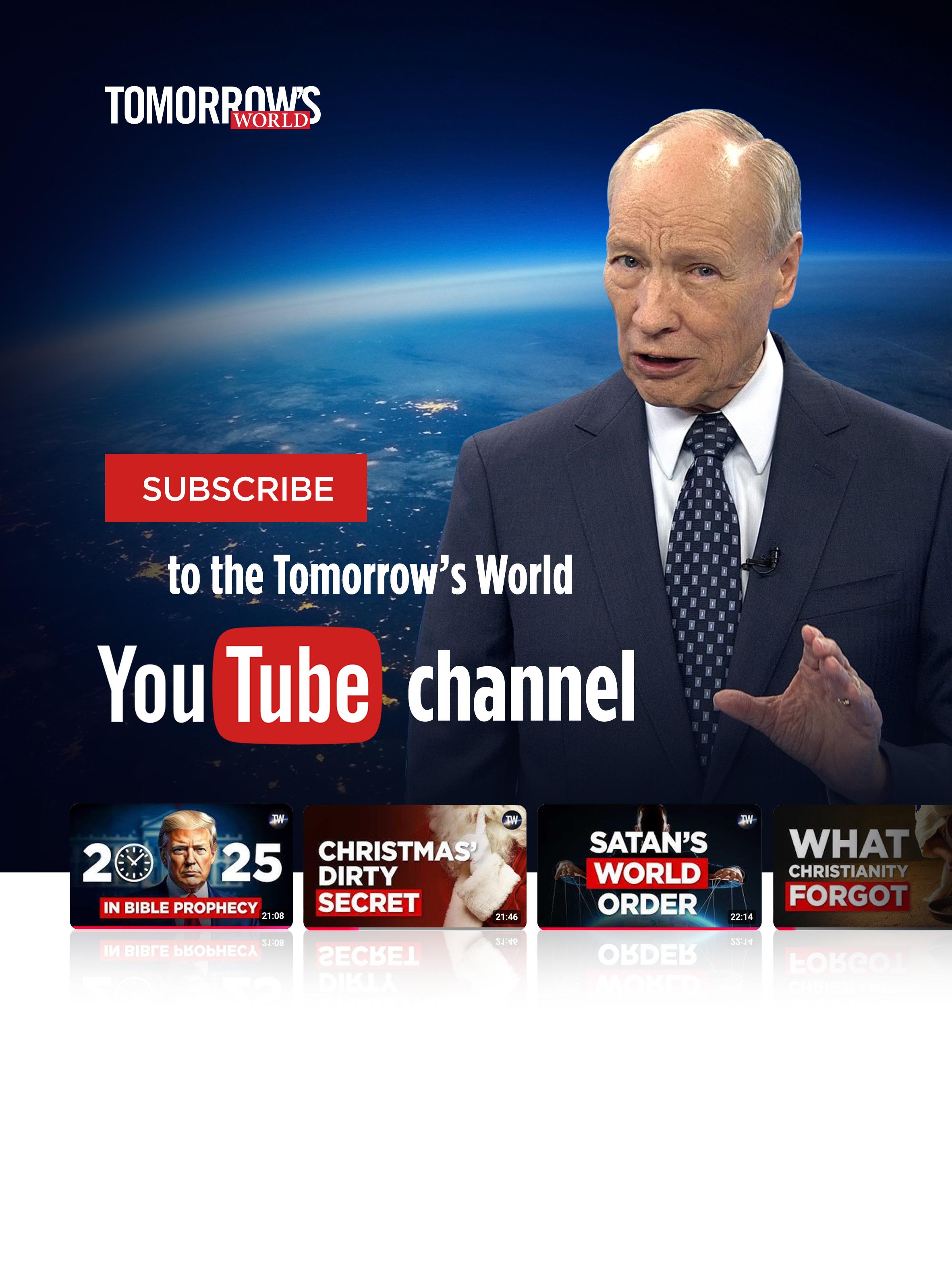

Why the Red Heifer Matters
By Peter G. Nathan
Young Melody was doted on by her caregivers, who saw her as something special, giving them hope for their future when she was born in August 1996. But those hopes were dashed before her third birthday.
Melody, you see, was a very special young calf, known as a “red heifer,” discovered among a dairy herd in Israel’s Jezreel Valley. Jewish ritual law, extrapolated from the Old Testament and supplemented with requirements set by Jewish scholars over the centuries, states that until a three-year-old red heifer can be sacrificed and its ashes collected, it will not be possible to resume animal sacrifices in Jerusalem, as some Orthodox Jews hope to do—and which the Bible tells us will be done before Jesus Christ returns. At birth, Melody appeared to fulfil the rabbis’ requirements, but before she was old enough to be sacrificed she had developed too many black or white hairs to be acceptable.
Fast-forward more than a quarter-century, when five female calves born in Texas were found to have the potential to qualify as a sacrificial red heifer. Shipped to Israel in September 2022, they were kept under tight security in Shiloh. Though they attracted little attention in the secular media, a Hamas spokesman in February 2024 claimed that the presence of a red heifer was a factor in Hamas’s brutal onslaught against Israel on October 7, 2023.
As we approach the second anniversary of that Hamas atrocity, the consequences of which are still raging in Gaza, we should examine the concern about the red heifer. Why does a segment of Israel’s popula-
tion have such interest in it, and why are sections of the Islamic world so eager to react against it? Evangelical Christians are also deeply interested in the matter. Details of the red heifer, its qualification, and the requirements for its sacrifice are set out in Numbers 19. To this, rabbis have added other requirements, including the age of the animal at which it can be sacrificed and the number of different-colored hairs that can be found on the animal. The heifer needs to be at least two years of age to be ready for sacrifice. By September of 2024, one of those animals imported from Texas may have been available for sacrifice, provided all other requirements were met. So, anticipation is rising among interested parties.
The Importance of the Sacrifice
The January–February edition of this magazine published an article by our Editor in Chief, Gerald Weston, entitled “Three Prophecies That Will Change Your Life.” The second of those prophecies was the start of daily sacrifices in Jerusalem. Those sacrifices will not begin before a red heifer has been sacrificed. The red heifer sacrifice, or offering, is an essential part of the preparation ritual to purify a potential new Jewish priesthood and their implements for performing daily sacrifices. It is important to notice that Scripture dictates that this heifer must be offered outside the camp, not in the Tabernacle or Temple courtyard. The offering must be done at the place where the carcasses of sin offerings from the Day of Atonement sacrifices must be burned (Numbers 19:3–4; Leviticus 16:27–29). When the Temple in Jerusalem was operating, any sacrifice of a red heifer
would have taken place on the Mount of Olives, a location from which the High Priest officiating the offering would have clearly seen the Temple. Scripture speaks of the connection between this location and the death of Jesus Christ (Hebrews 13:11–14). A group known as the Temple Institute, seeking to prepare a sacrifice of a red heifer in due time, is said to own land on the Mount of Olives that could be used for such purposes, but it has other options as well. A red heifer could be sacrificed at Shiloh, rather than on the Mount of Olives, keeping the event “low profile” and away from media attention. Regardless, Muslims in the region would view a sacrifice at either location as a provocation.
What is its purpose? The sacrifice results in ashes that, when mixed with water, can be used for purification. The book of Hebrews addresses the ceremonial significance of the ashes of a heifer, saying that “the blood of bulls and goats and the ashes of a heifer, sprinkling the unclean, sanctifies for the purifying of the flesh” (Hebrews 9:13). Those serving in the Temple or Tabernacle were to be ceremonially cleansed by “water of purification”—water mixed with the ashes of a heifer (Numbers 8:5–12; 19:9).
Ordinary Israelites were also purified by these ashes before entering the Tabernacle or Temple. We find that this purification took place when the Jews kept the Passover in Jerusalem after returning from captivity (Ezra 6:20), and it also appears in the Gospel accounts, which describe people as coming to Jerusalem early to become purified before keeping the Passover (John 11:55). The purity of His people is of great importance to God.
But the sacrifice of the red heifer is only the beginning. The Temple Institute estimates that 13 major

steps are necessary to prepare for daily sacrifices to resume in Jerusalem. One of these steps is gaining the Israeli government’s approval. The current government appears not to have the appetite for that presently, but the potential for a change in approach does exist.
Furthermore, the sacrifice of the red heifer does not mean that daily sacrifices will begin immediately afterward—even though they could. The ashes can be stored and used over a long period, with one heifer potentially providing enough ashes to serve this purpose for decades. But once having sacrificed a red heifer, the Temple Institute would have the means of purifying all the furniture and utensils it has prepared for a new altar and temple, as well as a means of purifying the priesthood and Levitical helpers necessary to operate the temple and sacrificial system.
The Time Is Coming
The prophet Daniel tells us of a time when sacrifices will be reinstituted and then forcibly stopped by an army invading Jerusalem (Daniel 8:11–12). An “abomination of desolation” will be set up just a few years before the Messiah’s return (Daniel 12:9–13). These were obviously the passages of Scripture that shaped the view of medieval Jewish scholar Maimonides when he posited that the final red heifer would be prepared at the time of the Messiah’s return. Jesus Christ used Daniel’s prophecy as a marker for a time of future trouble—trouble of a magnitude yet unknown to the world (Matthew 24:15–21). Once again, the context is the time of Jesus’ return, this time as the King of Kings and Lord of Lords—the Messiah who will change this world.
Although there are potential red heifers that are more than two years of age, rabbis are still studying their suitability for use as a red heifer sacrifice. But we know that, one of these days, when God decides the time is right, a red heifer will be sacrificed to fulfill Daniel’s inspired prophecies—and that will begin to usher in the age of the returned Messiah.
For more insights on events about to take place in Israel and the Middle East, we offer our free booklet The Middle East in Prophecy. You can request a free printed copy online or from the Regional Office nearest you (listed on page 4 of this magazine), or you can read it online at TomorrowsWorld.org. TW

Europe’s Time Has Come
What follows is not intended to support one political party or nation over another. Tomorrow’s World does not endorse any political candidate, but we do not shy away from topics relating to the fulfillment of Bible prophecy and biblical values. Any mention of individual leaders should not be taken as an endorsement of or complaint against the individual, their party, or their country.
By Gerald E. Weston
The Bible is once again proving its skeptics wrong. Who foresaw the dramatic shift in German thinking that began suddenly three-and-a-half years ago—a shift that continues to intensify? The answer is, those who understand Bible prophecies—prophecies that have been highlighted here at Tomorrow’s World for many years. We did not foresee this change by having greater intellect, looking into a crystal ball, following Nostradamus, or receiving a vision in the night. It is all there in the Scriptures.
We have for decades shown from the book of Revelation, the book of Daniel, and elsewhere in Scripture that Germany will once again become a dominant military force in Europe—and that events will cause ten nations or kingdoms in Europe to give their power over to a German-led colossus that Scripture calls “the beast.” Naysayers have ridiculed the idea of another European revival of the Roman Empire, but that is what is beginning to happen even as you read this article. It is never a good idea to bet against God and His word!
An Epochal Turning Point
On February 21, 2022, Russian President Vladimir Putin sent troops into Ukraine as “peacekeepers,” then launched a full-scale invasion three days later. That was a wake-up call for European leaders, and Germany’s then-Chancellor Olaf Scholz immediately called for a Zeitenwende—an epochal shift in people’s thinking. There was a sudden move from pacifism to war-readiness as Germans quickly saw the need to
build a strong military force for use where needed. Mr. Scholz called for spending €100 billion (U.S. $108 billion) to rebuild his nation’s armed forces and to boost annual military spending to more than 2 percent of GDP—including the purchase of F-35 stealth aircraft capable of carrying nuclear weapons.
This was a startling change, as Germany had run from its militaristic past since the end of World War II, focusing on peaceful coexistence and a strong economy. Other European countries receiving Mr. Putin’s wake-up call have also ramped up their own military spending, but Germany is in a unique position as a result of both its history and its economic power,
And the election of United States President Donald Trump has further prompted Europeans to look to themselves for defense. At the Munich Security Conference, U.S. Vice President J.D. Vance on February 14 shocked participants when he criticized America’s European allies for allowing mass migration, eroding free speech, ignoring religious freedom, and overturning elections in the name of “defending democracy.” Stunned European leaders said Mr. Vance’s comments “confirmed their worst fears” (“The Speech That Stunned Europe,” February 18, ForeignPolicy.com).
Germany’s New Direction
The U.S. is not the only country with a new leader. On May 6, conservative Friedrich Merz, leader of Germany’s right-of-center Christian Democratic Union, became his country’s new chancellor. In an interview with public broadcaster ZDF, Mr. Merz promptly called on the Trump administration to “stay out” of German politics and emphasized the role of the European
Union: “Together, we are even bigger than the U.S..... We are united, to a large extent anyway” (“Merz to Trump team: Stay out of German politics,” Politico.eu, May 7, 2025).
Observers expect Mr. Merz to accelerate European moves toward self-sufficiency, creating what the European Council on Foreign Relations characterizes as a “two-speed Europe” with an inner core of economically and militarily powerful nations taking a greater role. This fits with Bible prophecy, because right now the European Union is composed of 27 nations. It is primarily an economic union, but the Bible speaks of a military power made up of only ten. We may expect that there will be a broad-based economic union with a smaller inner-core military union that lasts but a short time (Revelation 17:12).
A recent article on German-Foreign-Policy.com featured a sobering title: “All or nothing: German foreign policy advisors and experts urge massive rearmament and much higher troop numbers. They warn: Germany will otherwise lose influence and the EU will disintegrate.” The article went on to say that “in Berlin, government advisors and foreign policy experts are calling for a massive increase in the military budget, drastic cuts in social spending and the vigorous indoctrination (‘change of mentality’) of the population. Rapid militarisation is, they argue, the task of the next German government.… the next government must prepare society ‘for Germany to become the leading European power, diplomatically and militarily’” (March 4, 2025).
Chancellor Merz, a previously strong advocate of the Trans-Atlantic alliance, recognizes the seriousness of the rift in relations and sees that there is no turning back, telling German lawmakers in February, “My absolute priority will be to strengthen Europe as quickly as possible so that, step by step, we can really achieve independence from the USA” (Politico.eu, February 24, 2025). Note that Mr. Merz said this even before the February 28 White House blowup between Vladimir Zelensky and the U.S. President and Vice President. What does this independence entail?
German lawmakers have voted to allow a huge increase in defence and infrastructure spending—a seismic shift for the country that could reshape European defence. A
two-thirds majority of Bundestag parliamentarians, required for the change, approved the vote on Tuesday. The law will exempt spending on defence and security from Germany’s strict debt rules, and create a €500bn ($547bn; £420bn) infrastructure fund. This vote is a historic move for traditionally debtshy Germany, and could be hugely significant for Europe, as Russia’s full-scale invasion of Ukraine grinds on, and after US President Donald Trump signalled an uncertain commitment to Nato and Europe’s defence (“Germany votes for historic boost to defence spending,” BBC.com, March 18, 2025).
Mr. Merz has long been a staunch proponent of fiscal responsibility, so we should not underestimate the importance of his support for this dramatic change. And even as he seeks to bolster Germany’s military strength, he has not lost sight of Europe’s need for economic strength. After the Trump administration proclaimed a new slate of “Liberation Day” tariffs announced on April 2, most attention may have focused on U.S.-China relations, but Europe also felt the blow of what it considered an unprecedented assault on its economy. Not since the Smoot-Hawley Tariff Act of 1930 had the U.S. threatened such massive tariff increases on its trading partners. Reacting to news of the new tariffs, Mr. Merz told reporters that he had urged Mr. Trump to take tariffs “down to zero” and reminded him that the “closest trading partner for the U.S is not Germany, France or Poland—it’s Europe and the European Union” (“Merz to Trump: Give us ‘zero’ tariffs,” Politico.eu, May 9, 2025). After decades of positioning itself as a peacemaking and collaborative force in European and world affairs, Germany is now poised to take on a more powerful role in economic and military spheres. Standing alongside EU President Ursula von der Leyen at a May 9 press conference, Mr. Merz told reporters, “Germany needs to play a strong role, an active role, in the European Union, and the German government is going to do so” (“Merz says Germany is back with voice on EU stage,” DW.com, May 9, 2025). Gone are the days of a Germany chastened and shamed by its militaristic ambitions that led to two World Wars in the twentieth century.
A New European World Leader
Mr. Merz is not the only new leader to emerge on the European scene in recent months. The election of Pope Leo XIV has the potential to complicate relations between the U.S. and Europe in ways not previously seen. As the first-ever Roman Catholic pope from the U.S., Leo has arguably become the world’s most prominent American—yet he heads a global organization with powerful roots in Europe. Also a citizen of Peru, Leo has ties to the “Global South” as well as Europe—potentially a valuable asset for a Europe seeking a new balance of world power with diminished U.S. influence. For more on the place of the papacy in European and world events, please read Wallace G. Smith’s informative article “On Popes and Prophecy” on page 5 of this issue.
“Europe’s Time Has Come”
The North Atlantic Treaty Organization was formed on April 4, 1949, in the wake of World War II. It has been said informally that NATO was formed “to keep Germany down, Russia out, and the United States in.” What we now see is Germany rising, Russia knocking at Europe’s eastern door, and the U.S. disengaging from Europe.
It is not uncommon for allies to have disputes and differences to overcome, but what we are seeing is a historic geopolitical shift that students of European history and Bible prophecy should find chilling. The rise of an economic and military juggernaut involving a combine of European nations is something this ministry has spoken, written, broadcast, and warned about for decades. A year’s worth of Tomorrow’s World magazines would not contain all we have said on this subject that is now beginning to take shape. We offer several booklets directly addressing this matter, including The Beast of Revelation: Myth, Metaphor, or Soon-Coming Reality? If you haven’t already read this powerful booklet, written by the late evangelist and Tomorrow’s World contributor John H. Ogwyn, I urge you to do so. You can read it online or order a free printed copy at TomorrowsWorld.org. You can also order a free printed copy from the Regional Office nearest you, listed on page 4 of this magazine. What we now see happening is the rise of a German-led Europe, beginning to build a powerful world-class military force with nuclear weapons totally independent from the U.S.—its former protector.
In an article titled, “Will the threat of Trump end Germany’s austerity zeal?” the journal Politico reported:
“In view of the threats to our freedom and peace on our continent,” the mantra “whatever it takes” must now apply to Europe’s defense, Merz told reporters earlier this month as he announced a historic borrowing plan that could unleash €1 trillion in new spending for defense and infrastructure over the next decade.… “The meeting in the White House between Zelenskyy and Donald Trump really showed the whole drama in which we are living today in terms of security policy, and that is why we had to act quickly,” Merz said on public television on Sunday [March 16]. “We now have to take a more independent path from America,” he added. “Europe’s time has come” (March 18, 2025, emphasis added)
Yes, Europe’s time. Not Germany’s alone. Reuters reported this response from the EU Commission President following the White House blowup between the U.S. administration and Ukrainian President Zelensky: “New EU plans to strengthen Europe’s defence industry and increase military capabilities could mobilize close to 800 billion euros ($841.4 billion), EU Commission President Ursula von der Leyen said…. The EU will propose to give member states more fiscal space for defence investments, as well as 150 billion euros in loans for those investments, and will aim to mobilize private capital as well” (“EU defence plans could mobilise 800 billion euros, von der Leyen says,” Reuters.com, March 4, 2025).
European nations are circling the wagons as they realize they must stand on their own in the face of a threat from the East. The military awakening of Europe, and especially Germany, is no small matter. Twice in the last century a militarized Germany plunged the world into wars that took the lives of tens of millions. We know that it is not their intent to bring about a third round, but the descendants of ancient Assyria will once again wield the sword against the nations of Israel:
Woe to Assyria, the rod of My anger and the staff in whose hand is My indignation. I will
send him against an ungodly nation, and against the people of My wrath I will give him charge, to seize the spoil, to take the prey, and to tread them down like the mire of the streets. Yet he does not mean so, nor does his heart think so; but it is in his heart to destroy, and cut off not a few nations (Isaiah 10:5–7).
The transformation of Germany and Europe is historic, and it is taking place at breakneck speed. A BBC article titled “Germany decides to leave history in the past and prepare for war” reflected on Germany’s sobering change in defense policy:
Germany’s military, the Bundeswehr, recently got the all-clear for a massive increase in investment after parliament voted to exempt defence spending from strict rules on debt. The country’s top general has told the BBC the cash boost is urgently needed because he believes Russian aggression won’t stop at Ukraine. “We are threatened by Russia. We are threatened by Putin. We have to do whatever is needed to deter that,” Gen Carsten Breuer says. He warns that Nato should be braced for a possible attack in as little as four years…. “And the sooner we are prepared the better” (BBC.com, March 31, 2025, emphasis added).
The Coming European Power
The fact is that the U.S. and Europe are pulling apart. Europeans recognize their need to unite for their own defense, and Germany sees its need to step to the front. The book of Revelation describes what we will see in the near future. We cannot know the exact timing in advance, but as shown in the quote above, the time it will take Europe to prepare to withstand an attack by a nuclear superpower to its east is short— perhaps just four years or less.
But Bible prophecy explains that this “beast” power will do far more than defend Europe against Russian attack. As happened twice in the last century, this German-led force of “kings” (nations or groups of nations) will bring the whole world to war once again.
MAY WE SUGGEST?
“The ten horns which you saw are ten kings who have received no kingdom as yet, but they receive authority for one hour as kings with the beast. These are of one mind, and they will give their power and authority to the beast” (Revelation 17:12–13). And what is the timing of this prophecy? At the return of Jesus Christ, “these will make war with the Lamb, and the Lamb will overcome them, for He is Lord of lords and King of kings; and those who are with Him are called, chosen, and faithful” (v. 14). My father once told me that the Europeans could never get together—conventional wisdom based on his knowledge of the differences between the European peoples. Yet the Bible describes them doing exactly that. These same ten nations found in Revelation are depicted in Daniel as the feet and toes of a giant image that King Nebuchadnezzar saw in a dream. We know they are the same because of the context and how they will be destroyed by the returning Messiah.
Whereas you saw the feet and toes, partly of potter’s clay and partly of iron, the kingdom shall be divided; yet the strength of the iron shall be in it, just as you saw the iron mixed with ceramic clay. And as the [ten] toes of the feet were partly of iron and partly of clay, so the kingdom shall be partly strong and partly fragile. As you saw iron mixed with ceramic clay, they will mingle with the seed of men; but they will not adhere to one another, just as iron does not mix with clay (Daniel 2:41–43).
So, when will this fragile combine of ten nations come apart? At the time of God’s intervention, when Jesus Christ returns to set up a different kingdom: “And in the days of these kings the God of heaven will set up a kingdom which shall never be destroyed; and the kingdom shall not be left to other people; it shall break in pieces and consume all these kingdoms, and it shall stand forever” (v. 44).
Events are unfolding rapidly. Between the time I write this and the time you hold this magazine, how much more will the world change? Be sure to keep reading Tomorrow’s World to understand Bible prophecy as it plays out before your eyes. TW
Germany in Prophecy The Bible reveals how God will use Germany to transform the world as we know it. Request this free printed booklet from the Regional Office nearest you, or order at TomorrowsWorld.org PDF and ePub are also available.

QUESTIONS AND ANSWERS
What is “the laying on of hands”?
Question: I see that “laying on of hands” is called one of the “elementary principles” of Christian practice and is even labeled a “foundation” (Hebrews 6:1–2). But what exactly is it?
Answer: The laying on of hands is a ceremonial act in which a servant of God prays while placing his hands on the head of the person for whom he is praying. This simple ceremony holds great spiritual importance, symbolizing God’s desire to set something or someone apart.
We see an early example when Moses “took Joshua and set him before Eleazar the priest and before all the congregation. And he laid his hands on him and inaugurated him, just as the Lord commanded by the hand of Moses” (Numbers 27:22–23). Moses did not appoint Joshua—he laid hands on Joshua to symbolize God’s decision.
In the New Testament, God gave authority to deacons through His ordained servants, the Apostles, who, “when they had prayed, they laid hands on them” (Acts 6:6). Later, we read that the elders at Antioch laid hands on Paul and Barnabas, commissioning them for their missionary journey: “The Holy Spirit said, ‘Now separate to Me Barnabas and Saul for the work to which I have called them.’ Then, having fasted and prayed, and laid hands on them, they sent them away” (Acts 13:1–3). God used the laying on of hands to show that Joshua, the deacons, and Paul and Barnabas were all set apart for His purpose.
The laying on of hands is also used to convey God’s blessings. When Jesus blessed small children, “He took them up in His arms, laid His hands on them, and blessed them” (Mark 10:13–16). This blessing clearly showed where and through whom God was working.
The Holy Spirit and Healing
The laying on of hands after baptism imparts the gift of the Holy Spirit. “Now when the apostles who were at Jerusalem heard that Samaria had received the word of God, they sent Peter and John to them, who, when they had come down, prayed for them that
they might receive the Holy Spirit…. Then they laid hands on them, and they received the Holy Spirit” (Acts 8:14–17). God sent one of His servants to baptize and lay hands on the newly called Paul, “and laying his hands on him he said, ‘Brother Saul, the Lord Jesus… has sent me that you may receive your sight and be filled with the Holy Spirit’” (Acts 9:17). Paul later baptized the Ephesians, “and when Paul had laid hands on them, the Holy Spirit came upon them” (Acts 19:6).
Jesus told His ordained servants to lay hands on the sick for healing. “He said to them, ‘Go into all the world and preach the gospel to every creature…. And these signs will follow those who believe: In My name… they will lay hands on the sick, and they will recover’” (Mark 16:15–18).
The laying on of hands is also used to convey God’s blessings. When Jesus blessed small children, “He took them up in His arms, laid His hands on them, and blessed them.”
We see Paul following this instruction: “And it happened that the father of Publius lay sick of a fever and dysentery. Paul went in to him and prayed, and he laid his hands on him and healed him” (Acts 28:8). This instruction applies to anyone who is sick: “Let him call for the elders of the church, and let them pray over him, anointing him with oil in the name of the Lord” (James 5:14). It is God who heals, according to His will, and He gave instructions that involve the laying on of His servants’ hands.
Though God does act directly, He also uses His servants to carry out His will, especially in healing, blessing, and ordination, attesting to the human instruments through whom He works. We should note, however, that the power does not reside in the person, the physical act, or the hands themselves, but in God working through His physical Church and His physical ministry. God has appointed His Church to use the laying on of hands as a sign of His will, His Work, and His authority. TW

Remembering the Scopes “Monkey Trial”
By William Bowmer
The question of how to educate schoolchildren—and who should decide what they learn—has long been a contentious issue. Today, debate rages about returning more authority to states and local communities and limiting federal involvement in education. With the present controversy in mind, we may want to reflect on an event that unfolded 100 years ago, in the spring and summer of 1925.
The Background of the Case
It began when Tennessee’s Butler Act, passed in March of that year, forbade the state’s schools from teaching the theory of evolution. This made it illegal for publicly funded Tennessee schools “to teach any theory that denies the story of the Divine Creation of man as taught in the Bible, and to teach instead that man has descended from a lower order of animals.” It prescribed a fine of between $100 and $500 for anyone found guilty.
However, one clear dilemma it posed for Tennessee’s biology teachers was that the state had previously mandated the use of a biology textbook—A Civic Biology, by George William Hunter—that plainly taught evolution!
The textbook praised what it called Charles Darwin’s “wonderful discovery of the doctrine of evolution” and proclaimed that Darwin “gave to the world the proofs of the theory on which we to-day base the progress of the world” (p. 405). Biology teachers were thus forced to choose either to follow the state’s
curriculum and teach from a pro-evolution textbook, violating the Butler Act, or to obey the Butler Act and violate the state’s curricular laws. It is worth noting that Hunter’s textbook would be “canceled” today as both obsolete and offensive, as it attributed different racial groupings to evolution in action—topped by what it called “the highest type of all, the Caucasians” (p. 196). Today’s Bible-believing Christians agree that human beings are all members of one multifaceted species, with the races both united by common characteristics and distinguished by unique qualities, different but neither higher nor lower than one another. It is easy to understand how Tennessee’s conflicting laws could lead to a court challenge. Indeed, the American Civil Liberties Union (ACLU) offered to provide support for someone willing to challenge the Butler act, and before long, civic leaders in the sleepy little town of Dayton, Tennessee, figured that the national publicity such a case would gain could help to revitalize their town—Dayton had dropped to a population of just 1,800 from a high of 3,000 in the late nineteenth century.
So, a young Dayton engineer named George Rappleyea asked a sympathetic acquaintance, John Scopes, a 24-year-old biology teacher at Rhea County High School, if he would be willing to become the defendant in a test case. With the help of prosecuting attorney Herbert Hicks—also a friend of Scopes— Scopes was charged with violating the Butler Act. Their plan was to have him found guilty so appeals of the decision could go all the way to the U.S. Supreme Court, changing Tennessee law while bolstering Dayton’s economy.
The Development of the Case
Between Scopes’ May 9 arrest and the start of his trial on July 10, Dayton became a focus of international attention. Though the Scopes prosecution was launched as a test of conflicting legislation and motivated by the desire for the national spotlight on the community, there was strong public sentiment in favor of the Butler Act. Most people professed to believe in the Bible’s creation account.
And the presence of William Jennings Bryan as lead attorney for the prosecution only added to the case’s notoriety. Though he had not actively practiced law for decades at the time of the Scopes trial, Bryan was a national figure, having run for President of the U.S. three times. He had become a prominent Protestant religious speaker and one of the earliest to spread his message via radio, which is likely what drew him to the attention of the Scopes prosecution team. Bryan told The Chattanooga News on May 25, “The newspapers that have treated Tennessee law as a joke will find it no joking matter. Some legislatures and some courts have excluded the Bible from the schools. If a legislature can prohibit the reading of the Bible, can it not prohibit the teaching of a book that calls the Bible a lie?” Bryan felt that “the real issue in the Scopes case is not the teaching of evolution, but who shall control our schools and determine what shall be taught.”
High-profile attorney Clarence Darrow, a prominent member of the ACLU and an agnostic, agreed to represent Scopes. Early on, science fiction author H.G. Wells had been asked to defend Scopes, but he declined. Others sought to bring inventor Thomas Edison to Dayton to testify on behalf of evolution. As the Chattanooga Daily Times reported on July 11, “It is the hope of the Scopes defense representing modernism and science that Judge Raulston’s courtroom here will become the world’s largest schoolroom.” Some feared that the trial might literally become a circus when it was learned that Lillian Aurora, a popular stage performer known for her animal acts, offered to loan the defense “the educated movie picture chimpanzee” if they thought it might help their case.
Seeking to gain national attention for their cause, Scopes joined one of his defense attorneys, John Neal, on a tour of Washington, D.C., and other eastern cities in the days before the Dayton trial commenced. The
trip saw Scopes visiting the original copy of the U.S. Constitution at the Library of Congress and posing in front of it for reporters and photographers for 15 minutes. During their trip, Scopes and Neal visited the Supreme Court chambers, commenting that their case might ultimately be resolved there.
Despite the risk of widespread ridicule, Dayton businessmen and civic leaders welcomed the trial, hoping it would bring an economic boost to the struggling small town. The Knoxville Journal reported on May 20 that many Dayton citizens complained about Chattanooga officials’ efforts to have the trial moved there and threatened to boycott Chattanooga businesses unless those efforts were dropped. However, the attention Scopes and Neal brought to tiny Dayton was not all positive, as the July 18 Chattanooga Daily Times quoted German playwright and novelist Herman Sudermann as saying, “The trial exposes America to the ridicule of the world.” Princeton geology professor William Scott called the trial “a most humiliating display at which the whole world is laughing.”
The Trial Itself—an Anti-Climax?
After so much publicity—local, national, and international—it is no surprise that the trial itself did not live up to many observers’ expectations. Though Bryan hoped to use the trial to attack evolutionary theory, and many of Scopes’ supporters saw the trial as a platform for promoting modern science, trial judge John Raulston dashed both sides’ hopes by excluding from the trial the expert testimony offered by evolutionist and creationist witnesses—it was read into the court record for the benefit of reporters, but played no part in the actual proceedings of the trial.
Without the battle of evolution vs. creation at its fore, observers lamented that the trial had become “one of mere formalities,” as both sides acknowledged that Scopes, by teaching from the state-approved textbook, had violated the Butler Act. Once the media circus was derailed, the case was simple. The jury took just nine minutes to find Scopes guilty, convening at 11:20 a.m. on the morning of July 21 and returning its verdict at 11:29 a.m. after five minutes of deliberation. Judge Raulston imposed a fine of $100, pending appeal of the case to the Supreme Court of Tennessee. The Chattanooga News that day called it “the world’s most famous misdemeanor case,” a case that “started
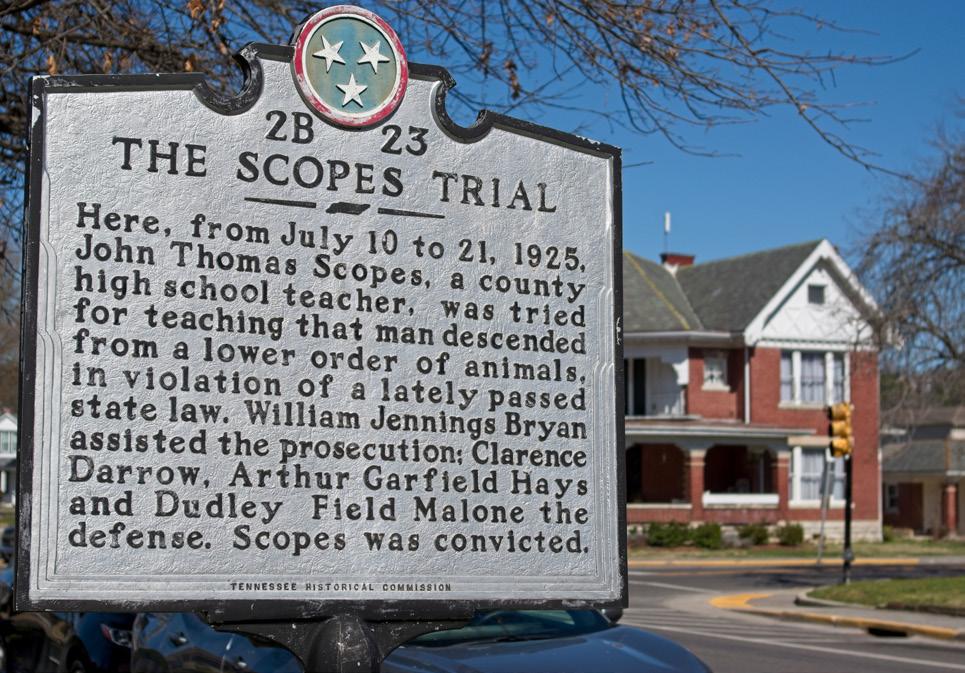
as a law suit, turned into a circus, and developed into a battle of billingsgate [trash talk] between attorneys.”
Though the plaintiffs in The State of Tennessee v. John Thomas Scopes were ready to take their case all the way to the U.S. Supreme Court, that never happened. The Tennessee Supreme Court in January 1927 reversed Scopes’ conviction on a technicality. According to Tennessee law at the time, only a jury could impose a fine larger than $50, so Scopes’ judge-imposed fine of $100 was thrown out. There was no legal issue remaining to escalate to the federal courts.
The Aftermath
The Butler Act stayed on the books until May 1967, when the Tennessee legislature repealed it to avoid another similar court challenge that many feared would become an embarrassing international spectacle.
As for the economic benefit the trial brought to Dayton? The Chattanooga Daily Times on July 11 ran an article titled “Huge Crowds, Expected for Weeks, Fail to Put in Appearance,” reporting, “Of course, there are a few hundred there, and they are deeply interested, but for the most part their interest lies in trying to get the first news first, for they are newspaper reporters.” This was hardly the throng of tourists the city’s business community had hoped for—and most of the crowd was packed into the Rhea County courthouse, not enjoying the town’s amenities. Rhea County’s economy is estimated to have received a far greater boost from the solar eclipse in 2017, when Dayton was in the path of totality, than from the
MAY WE SUGGEST?
Scopes Trial! But it is fair to say that the Scopes Trial left an impact far more than economic.
One hundred years later, the facts of the Scopes case have largely faded from public memory, perhaps best remembered through the fictionalized lens of the 1960 movie Inherit the Wind and several subsequent television adaptations. And today, most evolutionists have largely abandoned the particulars of Darwin’s original theory, discarding it in favor of modernized alternatives. Yet the question of intelligent design vs. evolution remains a controversial topic. Evolutionary biologists now entertain theories that most thought ridiculous just a generation or two ago, such as panspermia—the idea that since there hasn’t been enough time for intelligent life to evolve on planet Earth, primitive life-forms must have arrived from outer space.
As for what Tennessee was teaching its biology students in 1925, we may want to reflect on one perceptive statement from A Civic Biology. We read, “Although anatomically there is a greater difference between the lowest type of monkey and the highest type of ape than there is between the highest type of ape and the lowest savage, yet there is an immense mental gap between monkey and man” (p. 195). Evolutionists marvel that while the DNA of chimpanzees and human beings is quite similar, varying according to some estimates by as little as 2 percent, the mental capacity of human beings is vastly greater. But while evolutionists are confounded, students of God’s word understand that God has put in human beings a “spirit in man” (Job 32:8) that sets mankind apart and makes us able to receive the Holy Spirit after baptism and laying on of hands (see this issue’s “Questions & Answers” on page 21).
Serious students of God’s word must consider: Is the theory of human evolution compatible with Scripture? Or is it an agenda-driven attempt to deny the plain truths of the world we see around us? To learn more, please read our powerful and informative study guide Evolution and Creation: What Both Sides Miss. You can order a free printed copy from either the Regional Office nearest you or TomorrowsWorld.org, where you can also read it online. TW
Evolution and Creation: What Both Sides Miss Evolutionists have a false perception of the origin of the universe—but so do many creationists. Request this free printed booklet from the Regional Office nearest you, or order at TomorrowsWorld.org PDF and ePub are also available.
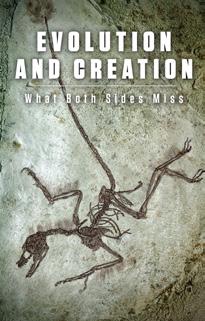
YOUR MENTAL DIET
Do you talk to yourself?
All day, every day, our “inner voice” chatters away at us in a monologue in our minds. This “discussion” can be positive or negative, and it greatly impacts our lives in many ways we might not often think about.
Psychologists call it “self-talk.” It is something we all do, and research has shown that it can have some interesting effects—for good or ill. We may tell ourselves, “You can do this!” Or we may tell ourselves, “You have no options, no chance of success. You will fail.” Assuming defeat limits outcomes.
Athletes use self-talk to enhance their performance, using mental exercises to “program” their minds and bodies to properly execute actions like serving a tennis ball, jumping hurdles, or performing a competitive dive. I have watched with keen interest as an Olympic high jumper bobbed his head in “self-talk” while imagining himself successfully going through each motion necessary to properly execute the jump and clear the bar.
I have also watched as a professional golfer engaged in negative self-talk. He “psyched himself out,” allowing negative selftalk to defeat him.
I have also watched as a professional golfer engaged in negative self-talk, sabotaging his performance. He “psyched himself out,” allowing negative self-talk to defeat him.
The technique of positive self-talk is known to enhance an athlete’s performance, be it on the track, field, ski slope, or diving tower. Athletes use this technique to “see” themselves performing physical actions correctly and successfully before their attempts. They tell themselves to keep the head down, keep the arm straight, tuck and twist with the knees locked, and much more.
You Are What You Think
There is a biblical principle involved in this technique that we would do well to follow. It is not a matter of accomplishing great things through our own power or effort or by some mental trick, but of having a proper mindset.
We are what we think. We read that “as he thinks in his heart, so is he” (Proverbs 23:7). Great athletes control not only their physical diet—what they eat—but also their mental diet. They exercise their thoughts as well as their bodies. They train their minds as well as their muscles.
Likewise, those who follow Jesus Christ must control what they think. The Apostle Paul compared the Christian life to that of an athlete: “Do you not know that those who run in a race all run, but one receives the prize? Run in such a way that you may obtain it. And everyone who competes for the prize is temperate in all things” (1 Corinthians 9:24–25).
What we feed our minds and what we allow ourselves to think are vital. Our mental diet consists of what we see, read, and hear—and what we allow our own imagination to feed us through self-talk. The television shows, the radio programs, the words of the music we hear, and what we read are our mental “food.”
Paul also compared a Christian’s life to that of a soldier in warfare, writing that “the weapons of our warfare are not carnal but mighty in God for pulling down strongholds, casting down arguments and every high thing that exalts itself against the knowledge of God, bringing every thought into captivity to the obedience of Christ” (2 Corinthians 10:4–5). It requires mental effort and discipline to control our minds and exercise the right kind of thinking.
To have a healthy mental diet, we should follow Paul’s advice: “Finally, brethren, whatever things are true, whatever things are noble, whatever things are just, whatever things are pure, whatever things are lovely, whatever things are of good report, if there is any virtue and if there is anything praiseworthy— meditate on these things” (Philippians 4:8).
Talk to yourself positively. But know that you can also talk to God—and His words are the most positive of all. If you haven’t already, please read our free study guide Twelve Keys to Answered Prayer. You’ll find it online at TomorrowsWorld.org, and you can also order a free printed copy online or from our Regional Office nearest you.
—Roger Meyer
FAMILIES Tomorrow’s

When Hard Work Is Not Enough
Theodore Roosevelt was the twenty-sixth President of the United States, and he left an enormous impact on the development of America. His legacy includes breaking up vast corporate monopolies, pushing for food and drug safety regulations, and setting aside 230 million acres of land for public use. He was the first U.S. President to use the press as a tool to connect directly with the public, and as president he had unmatched energy and charisma.
But we were wrong about him.
In early life, Theodore Jr. (his father was a Theodore as well), suffered from a severe case of asthma. Biographer David McCullough recounted a conversation Roosevelt’s father had with him as a boy: “Theodore, you have the mind, but you have not the body, and without the help of the body the mind cannot go as far as it should. You must make your body. It is hard drudgery to make one’s body, but I know you will do it” (Mornings on Horseback, 2001, p. 112).
And make it he did. Young Teddy poured himself into strength-building and lung-capacity exercises with a fervor—so much so that his reputation has reached our generation as the inspirational story of a young boy who triumphed over physical limitations. Teddy Roosevelt has become the personification of “pull yourself up by your own bootstraps” personal development—the idea that if you work hard enough and dedicate yourself completely to a goal, you can achieve just about anything.
Only, it didn’t exactly happen that way. Roosevelt’s asthma did dramatically improve as he moved into young adulthood—but it wasn’t entirely because
of his exercises. McCullough wrote, “There was to be a misconception in later years that he conquered his childhood infirmities mainly through will power and body building, that he rid himself of asthma by making himself a strong man. But that is not quite the way it happened” (p. 167).
McCullough explained that Roosevelt’s asthma didn’t entirely go away. Certainly, his determination and perseverance played a part in the accomplishments he made throughout his life. But when it came to his asthma, it is likely that there were factors besides his exercises that led to his improvement— changes in his environment and life situation were probably more significant.
Myth versus Reality
Teddy Roosevelt embodies the American myth that you can overcome just about anything if you try hard enough. But the hard, cold reality is that many factors are beyond our control. We can’t quite accomplish everything we want. Sometimes things change and our circumstances improve—at other times, we must learn to live with our limitations. Either way, hard work by itself, though important, does not always guarantee success.
We see this everywhere in the world around us. Some people live in countries wracked with political repression and even violence. Some are forced to flee their homes for personal safety. Just working harder— exercising self-discipline and grit—doesn’t make their problems go away. Others, living in poor countries with limited opportunities, struggle financially. They may get a good education, have a great work ethic, and
strive to improve their conditions, but their external circumstances hold them back.
For others, health conditions make their lives difficult. I had a fifth-grade classmate named David who was confined to a wheelchair because of a rare disease that prevented his feet and hands from developing normally. The rest of us were cautioned not to bump into him, as his skin could break and bleed easily. He wrote with the greatest difficulty by propping a pencil or pen between his deformed hands. David was extremely bright and academically was at the top of his class—but all the tenacity, self-discipline, and hard work in the world would not have reversed his physical condition.
Our X-factor
The Bible does teach us to work hard—Scripture is full of advice about the benefits and blessings of applying ourselves with diligence.
Teddy Roosevelt embodies the American myth that you can overcome just about anything if you try hard enough. But the hard, cold reality is that many factors are beyond our control. We can’t quite accomplish everything we want.
King Solomon advised, “Whatever your hand finds to do, do it with your might; for there is no work or device or knowledge or wisdom in the grave where you are going” (Ecclesiastes 9:10). He captured the importance of using our time to learn and grow.
But perhaps it’s not a coincidence that, in the very next verse, Solomon acknowledged that we all have limitations: “I returned and saw under the sun that—the race is not to the swift, nor the battle to the strong, nor bread to the wise, nor riches to men of understanding, nor favor to men of skill; but time and chance happen to them all” (v. 11). Sometimes circumstances dictate unexpected outcomes despite the best planning, preparation, or effort. It’s good to keep this in mind, even as we do our best. Time and chance can happen to anyone.
But there is an “X-factor” for those who are in a relationship with God—parents as well as their
children (Acts 2:39; 1 Corinthians 7:14). If we submit to God in obedience and repentance, He will make the blessings of His way of life available. Christian parents have the opportunity and responsibility to teach their children that if they humbly follow Him in an obedient and repentant attitude, He will watch over them—their lives will not just be governed by random chance. Regarding His followers, Jesus said, “My Father, who has given them to Me, is greater than all; and no one is able to snatch them out of My Father’s hand” (John 10:29). As we accept His help, He will not allow us—or our children—to be tried beyond what we are able, but “with the temptation will also make the way of escape” (1 Corinthians 10:13).
As parents, we need to teach our children that when they put their hand in God’s hand, He will guide and help them. He will never leave them or forsake them (Hebrews 13:5). But we must explain to them that God sometimes allows us to remain in trials because He is teaching us to look to Him and depend on His help. The Apostle Paul wrote about learning this lesson:
Concerning this thing [a physical infirmity]
I pleaded with the Lord three times that it might depart from me. And He said to me, “My grace is sufficient for you, for My strength is made perfect in weakness.” Therefore most gladly I will rather boast in my infirmities, that the power of Christ may rest upon me. Therefore I take pleasure in infirmities, in reproaches, in needs, in persecutions, in distresses, for Christ’s sake. For when I am weak, then I am strong” (2 Corinthians 12:8–10).
So, when you face a trial—or when you are teaching your children to face a problem—remember that we were not put on this earth to earn a victory lap. We are given time here to develop a relationship with God and learn to trust Him. Through leaning on Him and asking for His help, we see how He strengthens and encourages us, even in trials.
Hard work will take us far, but sometimes it is not enough. Sometimes we need an X-factor. For Christians, the greatest X-factor of all is our relationship with the Creator and Sustainer of the Universe, our loving Father.
Rod McNair
The Global “Polycrisis”
Around the world, we see one global catastrophe or crisis upon another. While the world has always experienced wars, natural disasters, and a certain amount of political chaos, something is notably different today—and analysts and authors are taking note. Early this year, an article in The Guardian began, “Two months into 2025, the sense of dread is palpable.… Once-in-a-century disasters are happening more like once a month, all amid devastating wars and on the heels of a pandemic” (March 6, 2025).
There is even a new term to describe this “era of calamity”—polycrisis, referring to “the idea that not only are we facing one disaster after another, but those messes are all linked, making things even worse.” A Columbia University history professor observed, “the shocks are disparate, but they interact so that the whole is even more overwhelming than the sum of the parts.” However, some historians say that what we are witnessing is nothing more than “just history happening” or that this is nothing new. In contrast, political scientist Thomas Homer-Dixon believes that so many events are happening at such a pace that many cannot intellectually process all of it. “If you’re not really scared by what’s going on in the world,” Homer-Dixon states, “you’re braindead.” We should not be shocked by the climactic events
unfolding around the globe. The Bible tells of a coming time of global trauma that will be unprecedented in its scale and impact. Eventually, Jesus Christ warned, humanity will experience “great tribulation, such as has not been since the beginning of the world until this time, no, nor ever shall be” (Matthew 24:21). Immediately before this time, multiple crises will be unleashed that, together, will bring devastation to a quarter of the globe (Revelation 6:1–8). While we have not yet entered the fullness of those days, we should not be surprised as world affairs begin to align with the inspired prophecies of God’s word.
Europe Preparing Citizens for War
In newly released guidelines, the EU Commission has advised citizens to begin amassing food and water to last for at least three days (CNN, March 26, 2025). The 18page document aims to help EU citizens shift their mindset to one of resilience and preparedness and cites the war in
Ukraine, the 2020 pandemic, and supply-chain shortages as examples of large-scale crises. While the publication and related pronouncements talk of general “disaster readiness,” leaders’ actions show a very particular focus: Europe should be ready for war.
Norway is reopening hidden underground military bases (BBC, March 30, 2025). Finland is preparing to exit the 1997 Ottawa Convention that prevents the use of landmines, spurred by growing concerns with Russia. In March, Poland and three other Baltic nations also announced their intention to leave the treaty (Politico, April 1, 2025). And France is planning to publish a document to guide the French public in preparing for “armed conflict, nuclear threats, and natural disasters” (NBC, March 20, 2025).
Although the world is rapidly changing, people in many nations go on with life as usual. However, for those living in Europe, the experiences of both World Wars are not far removed from today. Bible prophecy speaks of the growing military threat

in Europe and the coming of a German-led “beast” power.
Germany Invites Disgruntled U.S. Researchers to Come to Europe
A change of presidential administrations in the United States has resulted in dramatic changes to government-funded medical and scientific research priorities. After returning to the White House, President Trump’s administration has cut funding for certain areas of research, resulting in an abrupt end to the research projects of many scientists. And Europe clearly sees this as an opportunity.
The U.S. has long been the envy of the world in many scientific fields, and American researchers have produced many of the world’s most advanced technologies and breakthroughs. In a forward-thinking move, European nations are working to persuade newly disgruntled U.S. scientists to work in Europe. As Germany’s former Minister of Education and Research observed, Germany needs to become “an attractive destination country for those who can no longer work there [in the U.S.]” (German Foreign Policy, March 19, 2025).
As a recent article in Politico stated, “From universities to cities, regions, countries and now the European Commission, the message is loud and clear—Europe welcomes U.S.-based talent and is pulling out all the stops
Swedish citizens are gathering supplies and rations to prepare for a coming crisis.
to attract America’s best and brightest” (April 4, 2025).
Independent European universities are offering millions of euros to incoming U.S. researchers and the EU has pledged 500 million euros for science and research funding (Deutsche Welle, May 5, 2025)—at a time when the economies of many EU nations are struggling.
After World War II, scientists immigrating to the United States helped turn the nation into the scientific powerhouse it is today; in the years ahead, a reversal of this process could propel Europe to the top once again scientifically (Politico, April 17, 2025)—and even militarily and economically. Europe may appear to be foundering, but its future will be change the world in ways many today would never imagine.
A Growing Eastern Alliance
For decades, South Korea and Japan have been closely aligned with the United States
in ideological opposition to China. For its part, China has traditionally supported North Korea, the enemy of South Korea. However, key global allegiances are realigning before our eyes—in line with prophetic conditions this Work has warned about for decades.
Leaders from China, Japan, and South Korea met in March to discuss common economic and security issues and growing global uncertainty (Reuters, March 22, 2025).
The Japanese foreign minister commented, “I believe we may truly be at a turning point in history.” The leaders agreed to hold a summit later in the year. They also discussed the powerful impact their three nations could have on geopolitics if they work together. And China expressed the desire to increase the membership of the Regional Comprehensive Economic Partnership—a 15-nation freetrade agreement that includes these countries.

Bible prophecy foretells an unprecedented military powerhouse originating from a region east of Jerusalem and the Euphrates River at the end of the age. This group of “kings from the east” will eventually enter the Middle East and gather at Armageddon with the rest of “the kings of the earth and of the whole world” (Revelation 16:12–16) to travel together to Jerusalem and confront the returning Messiah. As we watch the realignment of economically and militarily powerful nations in Asia, these pivotal Bible prophecies should be kept in mind.
Science Plays God
When the movie Jurassic Park was first released in 1993, moviegoers reveled in the idea that science could resurrect the dinosaurs. Most, however, understood that the idea of recreating dinosaurs from fossilized DNA was far-fetched. Fast-forward 30 years, and that once far-fetched idea is becoming reality!
The Austin, Texas, firm Colossal Biosciences has set its sights on the “de-extinction” of animals they deem to have had a beneficial impact on the biosphere. To accomplish this, scientists are using advanced gene-editing technology to modify the DNA of existing species (DW.com, April 8, 2025). In their first public attempt, scientists took recaptured DNA from a tooth and an ear bone of dire wolf specimens housed in museums. They then edited the
genetic code of the gray wolf to better match that of the extinct wolf species, making just 20 changes across 14 genes. The fertilized embryos were then placed into surrogate hounds, and 62 days later the world saw the birth of “dire wolf” pups for the first time in several millennia. The company warns that they do not know how long the pups will live because this is a genetic experiment. But to date, Romulus and Remus, along with their younger sister Khaleesi, are growing large quickly. They “will be larger and more muscular than related modern gray wolves if and when they reach adulthood.” The company is now working on the “de-extinction” of the woolly mammoth and plans to have a live baby by 2028. It hopes to use its technology to help reverse man-made extinctions brought about over the past couple of centuries.
The work of Colossal Biosciences is exciting yet sobering. When humans gain the power to re-create extinct creatures—and even create new creatures—by rewriting genetic code, what could come next? What must man think of himself when he can bring about such fantastic accomplishments? And who decides what lines can or cannot be crossed? There were reasons why God chose to confuse human language at the tower of Babel (Genesis 11:5–9). Seeking to play God without the wisdom of God is a dangerous game. TW
LETTERS TO TW
TELL US WHAT YOU THINK
Dear Tomorrow’s World, I’m truly grateful for all the booklets that have been sent to me. I have downloaded many books and am reading them faithfully. I’m a member of the Seventh Day Adventist Church and I’m sorry to say that some pagan things have crept into our church. When I get these booklets, I’m filling out the cards in them for our church members and family. Thank you so very much for the truth from the Bible, so easy to read and understand.
—Subscriber in Tennessee
I just wanted to let you know that the Tomorrow’s World Bible Study Course has opened up a new world, a better world for me. I had no idea how far away I had gotten from God. I just wanted to thank you for bringing me back to where I need to be. I have many struggles in my life but finding my faith again has given me hope.
—Subscriber in Mississippi
I deeply appreciate the work everyone at Tomorrow’s World does. As a child and continuing into adulthood I was often confused by what I was not learning from my Protestant upbringing. It seemed as though I instinctively knew that some things were missing and even when I would ask pointed questions, I received no answers. It wasn’t until I prayed for truth and understanding and began to earnestly seek it that I found the Tomorrow’s World website. I have been a subscriber for some time now and have grown so much. Thank you for what you provide.
—Subscriber in Alabama
After reading your letter recently sent I feel the need to thank you all for all you do to spread the word and
Editor in Chief
| Gerald E. Weston
Executive Editor | Wallace G. Smith
Managing Editor | John Robinson
Senior Editor | William Bowmer
Regional Editors | Robert Tyler (Australasia)
| Stuart Wachowicz (Canada)
| Peter G. Nathan (Europe)
Editorial Assistants | William Williams
| Thomas White
Graphic Designer | Benjamin Graham
Asst. Copy Editors | Sandy Davis
| Genie Ogwyn
| Linda Orban
Circulation Manager | Joshua Penman
Digital Subscriptions | Jason Talbott
Business Manager | Dexter B. Wakefield

This issue contains images used under license from Shutterstock.com
P. 5 Alessia Pierdomenico / Shutterstock.com
P. 24 Jerome L Lawson / Shutterstock.com
P. 28 Jeppe Gustafsson / Shutterstock.com
Tomorrow’s World® is published every two months by the Living Church of God™, 2301 Crown Centre Drive, Charlotte, NC 28227. ©2025 Living Church of God. Printed in the U.S.A. All rights reserved. Reproduction in whole or in part without written permission is prohibited. Unsolicited manuscripts will not be returned.
thank you for releasing me from my own personal prison. I feel so appreciative of your work and just want to say you’re all so groovy.
—Subscriber in Virginia
I have been a longtime reader and supporter of your ministry. Even though I turned 91 in September, and it takes me longer to read the magazines, booklets, and books you provide, I still enjoy the information. I also enjoy the DVDs and CDs and letters. Thank you for sharing your knowledge with those who are willing to learn.
—Subscriber in Montana
We who seek to truly know God need you! My belief in God and Jesus Christ is because of the Truth that you show us through Scripture. Thank you!
—Subscriber in Maryland
I appreciate everyone behind the scenes doing the hard work that it must take to get publications printed, edited, and so much to mention. You guys are very much appreciated, and I look forward to reading all that I receive from you. Please keep up the great work. My prayers are with you all daily.
—Subscriber in Oklahoma
Thank you so very much for all the literature, booklets, magazines, and most of all, inspiration I have been receiving for many years! There is nothing like going to the mailbox and finding something from Tomorrow’s World!
—Subscriber in Pennsylvania
Postmaster: Send address changes to Tomorrow’s World, P.O. Box 3810, Charlotte, NC 28227-8010.
Tomorrow’s World is protected through trademark registration in the United States, and by international treaties. Trademark registration pending in other countries. The symbol ®, appearing herein, does not indicate trademark registration in countries where it is not yet registered or protected by treaty.
Scriptures taken from the New King James Version®. Copyright © 1982 by Thomas Nelson. Used by permission. All rights reserved.
Mail your letters to “Letters to the Editor” at one of the Regional Offices listed on page 4 of this magazine, or send email to Letters@TomorrowsWorld.org Letters may be edited for space and clarity.
AUSTRALIA Nationwide

Television Log
NEW
SOUTH AFRICA
Nationwide
KASN
AZ Tucson KMSB SU 8:30 a.m.
Yuma KECY (CW) SU 9:00 a.m.
CA Bakersfield KGET (CW) SU 8:00 a.m.
Chico KHSL (CW) SU 8:00 a.m. El Centro KECY (CW) SU 9:00 a.m.
Eureka KECA-LD/KVIQ (CW) SU 8:00 a.m.
Monterey KION (CW) SU 8:00 a.m.
Palm Springs KCWQ (CW) SU 8:00 a.m.
Salinas KION (CW) SU 8:00 a.m.
San Francisco BAVC (Public Access) WE 8:00 a.m.
San Luis Obispo KSBY (CW) SU 8:00 a.m.
Santa Barbara KSBY (CW) SU 8:00 a.m.
Santa Maria KSBY (CW) SU 8:00 a.m.
CO Colorado Springs KXTU (CW) SU 8:00 a.m.
Grand Junction KJCT (CW) SU 7:00 a.m.
CT Hartford WWLP (CW) SU 8:00 a.m.
DC Washington DC WDCA SU 7:30 a.m.
DE Harrington WMDT (CW) SU 8:00 a.m.
FL Ft. Lauderdale WBFS SU 6:30 a.m.
Gainesville WCJB SU 6:00 a.m.
Gainesville WCJB (CW) SU 8:00 a.m.
Jacksonville WCWJ SU 6:30 a.m.
Miami WBFS SU 6:30 a.m.
Panama City WECP SU 7:30 a.m.
Panama City WJHG (CW) SU 7:00 a.m.
Tallahassee WTLF SU 8:00 a.m.
Tampa Bay WTOG SU 8:00 a.m.
GA Albany WALB (CW) SU 8:00 a.m.
Albany WALB SU 11:00 a.m.
Atlanta WATL SU 10:00 a.m.
Augusta WAGT (CW) SU 8:00 a.m.
Columbus WLTZ (CW) SU 8:00 a.m.
Macon WMAZ SU 8:00 a.m.
Savannah WSAV SU 8:00 a.m.
Thomasville WTLF (CW) SU 8:00 a.m.
IA Davenport KGCW SU 7:30 a.m.
Ottumwa KWOT SU 8:00 a.m.
ID Boise KBOI SU 7:00 a.m.
Idaho Falls KIFI SU 7:00 a.m. Twin Falls KMVT
IL Chicago WJYS SU 8:00 a.m.
Chicago WJYS SU 8:30 a.m.
Peoria WHOI SU 7:00 a.m. Quincy WGEM
MA Springfield WWLP
ME Bangor WABI
Presque
MI Alpena WBAE
Lansing WLAJ
8:00 a.m.
8:00 a.m.
Lansing WLAJ SU 11:00 a.m.
Calumet WBKP SU 8:00 a.m.
MN Cloquet KDLH (CW) SU 8:00 a.m.
Duluth KQDS SU 7:00 a.m.
Duluth KDLH SU 8:00 a.m.
Mankato KMNF/KEYC (CW) SU 9:00 a.m.
Rochester KTTC SU 7:00 a.m.
MO Columbia KOMU SU 7:00 a.m.
Joplin KFJX SU 8:30 a.m.
Kansas City KCWE SU 7:30 a.m.
St. Joseph KNPG SU 7:00 a.m.
St. Louis KPLR SU 6:30 a.m.
MS Biloxi WXXV SU 7:00 a.m.
Columbus WCBI SU 7:00 a.m.
Greenwood WBWO SU 7:00 a.m.
Hattiesburg WHLT SU 7:00 a.m.
Meridian WTOK SU 7:00 a.m.
MT Billings KVSI/NSVI (CW) SU 7:00 a.m.
Bozeman KCWB (CW) SU 8:00 a.m.
Bozeman KCWB (CW) MO 2:00 a.m.
Butte KCWB (CW) SU 7:00 a.m.
Butte KXLF SU 7:00 a.m.
Glendive KWZB SU 7:00 a.m.
Great Falls KCWG (CW) SU 7:00 a.m.
Helena KTVH SU 7:00 a.m.
Missoula KCWM (CW) SU 7:00 a.m.
NC Asheville WGGS SU 9:30 a.m.
Asheville WGGS SU 11:30 a.m.
Charlotte WAXN SU 9:00 a.m.
Charlotte WMYT SU 8:30 a.m.
Charlotte WMYT SU 10:30 a.m.
Greenville WNCT SU 8:00 a.m.
Hickory WHKY MO 7:30 p.m.
Willmington WWAY SU 8:00 a.m.
ND Bismarck KXMA (CW2) SU 7:00 a.m.
Fargo KJXB (CW) SU 7:00 a.m.
Williston KXMD SU 7:00 a.m.
NM Albuquerque KWBQ SU 8:00 a.m.
NV Reno KOLO SU 7:00 a.m.
NY Binghamton WBNG SU 8:00 a.m.
Brooklyn BRIC SU 7:00 p.m.
Brooklyn BRIC MO 12:30 a.m.
Elmira WENY SU 8:00 a.m.
Watertown WWTI SU 7:00 a.m.
Utica KYWKTV SU 8:00 a.m.
OH
Electronic Service Requested
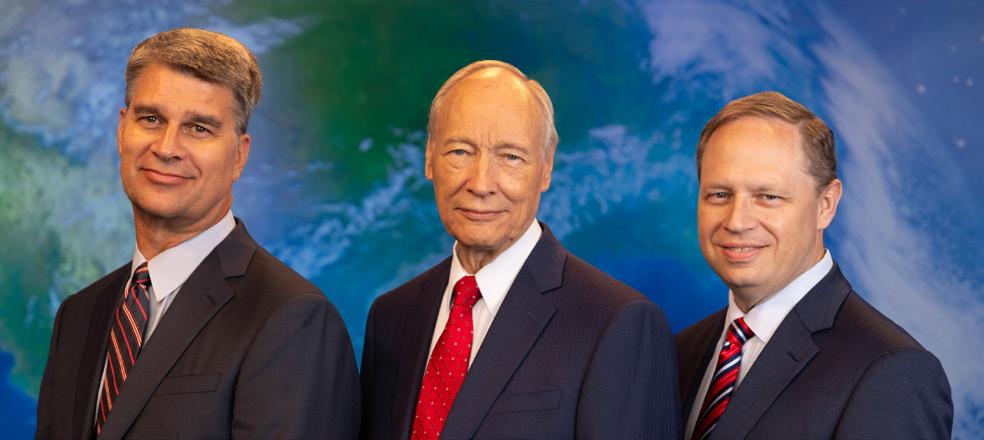
Upcoming Telecasts
Let’s Fix the World!
Do you wish you could make a better world?
Jesus Christ wants you to help Him do so!
June 26–July 2
Should We Follow Constantine or Christ?
Powerful men have suppressed Christ’s teachings for centuries, but you can follow Him in truth!
July 3–9
The War Against Normal
Why are dangerous fads and fallacies displacing the proven and reliable values of Scripture?
July 10–16
The Beast Is Rising Turmoil across Europe is setting the stage for the revival of an ancient empire!
July 17–23
Is Christianity Dangerous?
Jesus Christ’s teachings are increasingly under attack. But who is really following Him today?
July 24–30
You Do Not Belong to You
Human beings are designed to find fulfillment not in selfishness, but in Christ-like selflessness.
July 31–August 6
TOMORROW’S WORLD
Bible Study Course
Learn exciting and inspiring truths from your Bible, absolutely free!

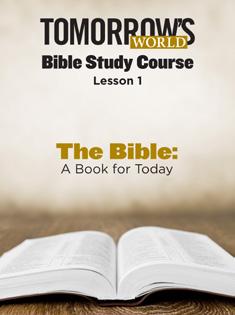
Order at TWBibleCourse.org or from the Regional Office nearest you! The Tomorrow’s World Bible Study Course can be taken by mail or online.
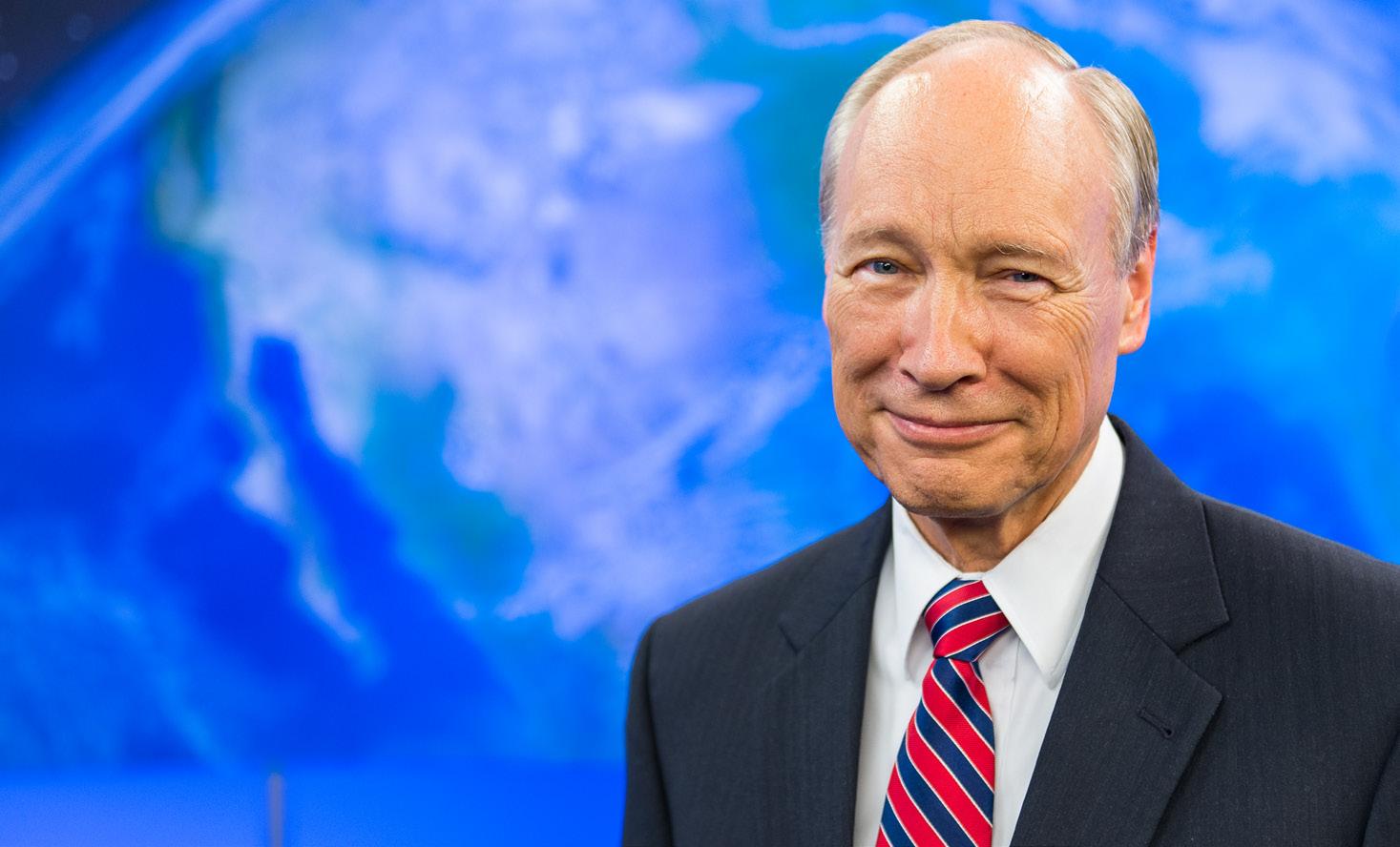
Find your local station on page 31 of this magazine.
